Lucasfilm, the Disney-owned movie production company behind Star Wars, announced Thursday a new partnership with Magic Leap, a startup working on so-called “mixed reality” technology.
The two firms announced the arrangement during the Wired Business Conference, presenting the video above as a demonstration of what might be possible when fusing Lucasfilm’s intellectual property with Magic Leap’s technology. The footage, while rudimentary in terms of plot, offers an idea of the kinds of storytelling that might be possible with mixed reality.
Instead of virtual reality, which offers users a completely digital environment, mixed reality gives viewers the illusion that computer-generated images are inhabiting their real-world physical surroundings.
Magic Leap has yet to announce a consumer version of its product or many details about how it might work beyond demonstration videos like this one. But CEO Rony Abovitz said Thursday that his goal is “to get all-day, every day computing,” meaning any eventual device might be a head-worn device that he would like users to wear as frequently as many people carry a smartphone today. Lucasfilm Chief Technology Officer Rob Bredow floated that the device might allow users to “skin your world,” adding visual elements from the Star Wars saga, for instance, to the real world around you.
50. Apple iPhone

Apple was the first company to put a truly powerful computer in the pockets of millions when it launched the iPhone in 2007. Smartphones had technically existed for years, but none came together as accessibly and beautifully as the iPhone. Apple’s device ushered in a new era of flat, touchscreen phones with buttons that appeared on screen as you needed them, replacing the chunkier phones with slide-out keyboards and static buttons. What really made the iPhone so remarkable, however, was its software and mobile app store, introduced later. The iPhone popularized the mobile app, forever changing how we communicate, play games, shop, work, and complete many everyday tasks.
The iPhone is a family of very successful products. But, more than that, it fundamentally changed our relationship to computing and information—a change likely to have repercussions for decades to come.
49. Sony Trinitron
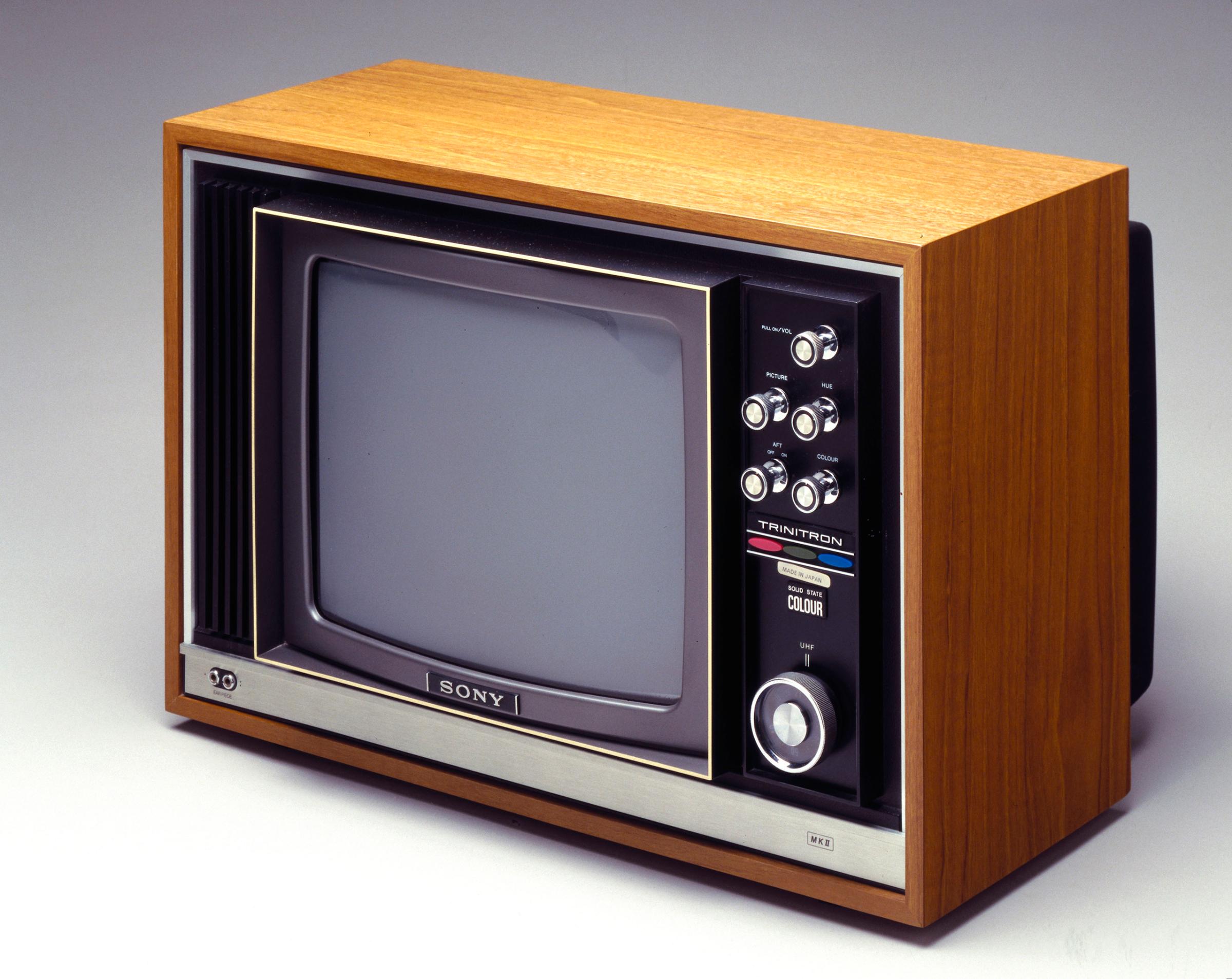
Renowned journalist Edward R. Murrow famously described television as “nothing but wires and lights in a box.” Of all such boxes, Sony’s Trinitron—launched in 1968 as color TV sales were finally taking off—stands at the fore of memorable sets, in part for its novel way of merging what to that point had been three separate electron guns. The Trinitron was the first TV receiver to win a vaunted Emmy award, and over the next quarter century, went on to sell over 100 million units worldwide.
48. Apple Macintosh
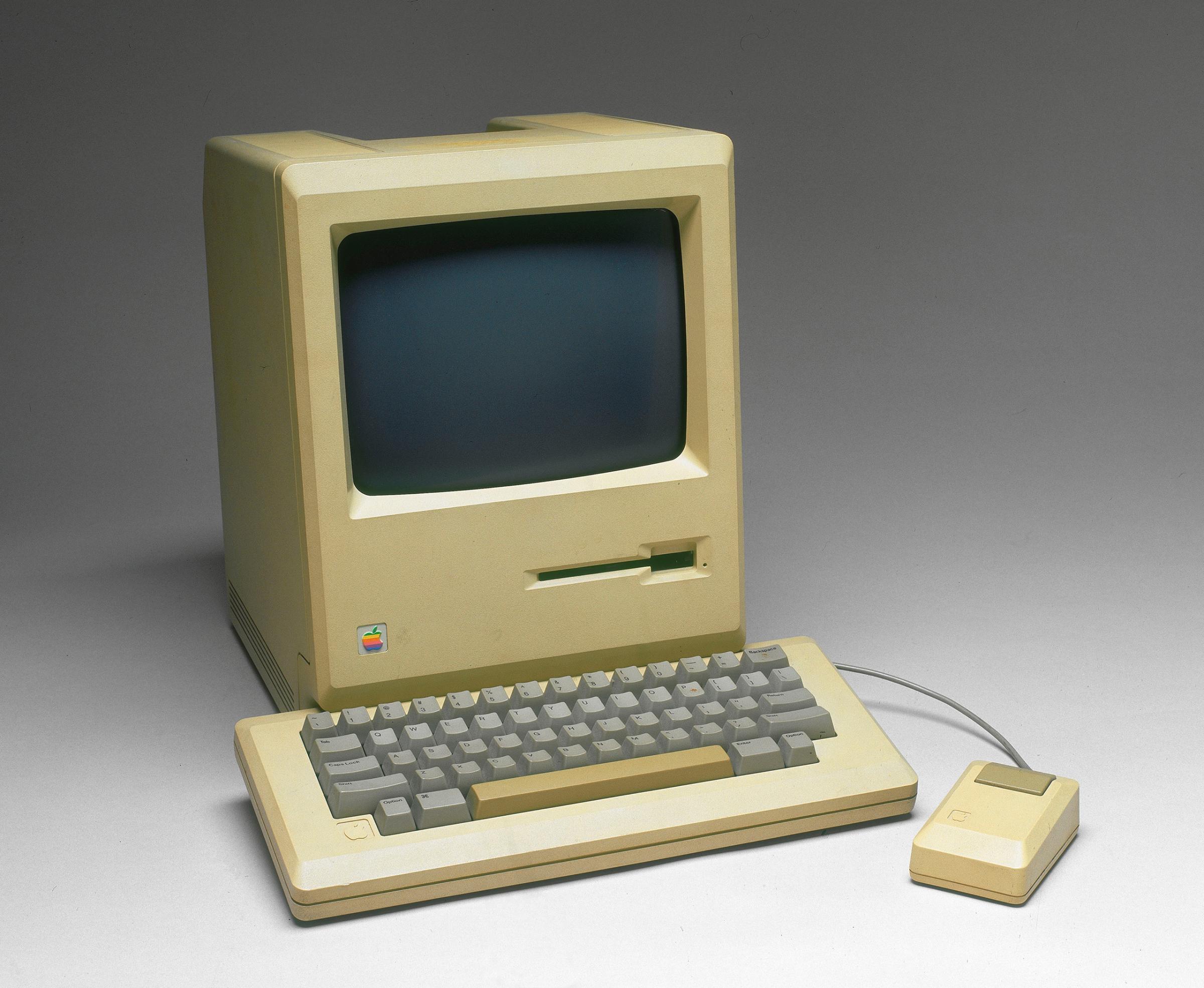
“Will Big Blue dominate the entire computer industry? The entire information age? Was George Orwell right about 1984?” That’s how Steve Jobs introduced the ad heralding the arrival of the Macintosh. With its graphical user interface, easy-to-use mouse and overall friendly appearance, the Macintosh was Apple’s best hope to take on IBM. High costs and Microsoft’s successful Windows software conspired to keep the Mac a perennial runner-up. But it forever set the standard for the way human beings interact with computers.
47. Sony Walkman
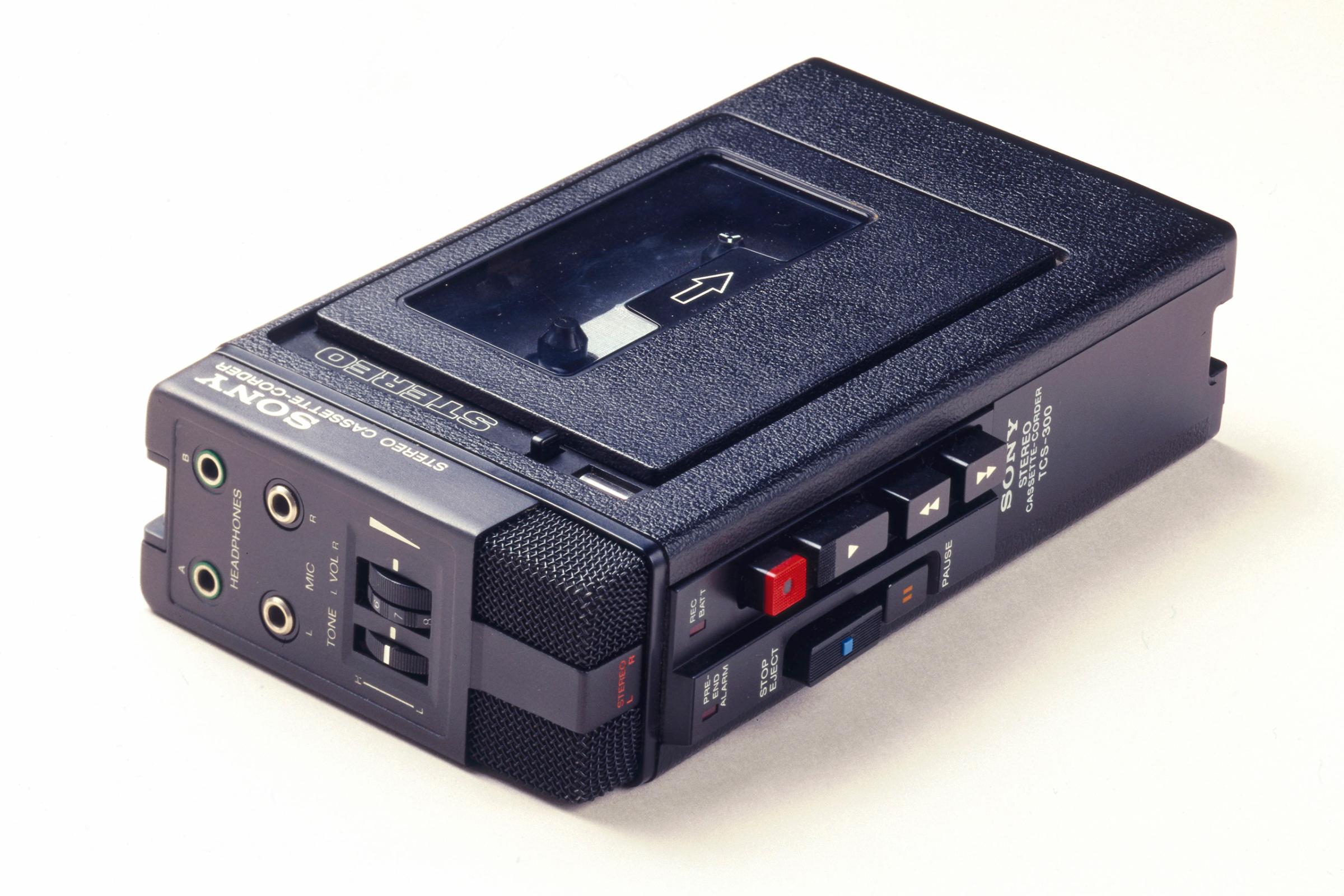
Sony’s Walkman was the first music player to combine portability, simplicity and affordability. While vinyl records were still the most popular music format, the Walkman—originally the “Sound-About” in the United States—played much smaller cassettes and was small enough to fit in a purse or pocket. It ushered in the phenomena of private space in public created by the isolating effect of headphones. It ran on AA batteries, allowing it to travel far from power outlets. Sony eventually sold more than 200 million of the devices, which paved the way for the CD player and the iPod.
46. IBM Model 5150
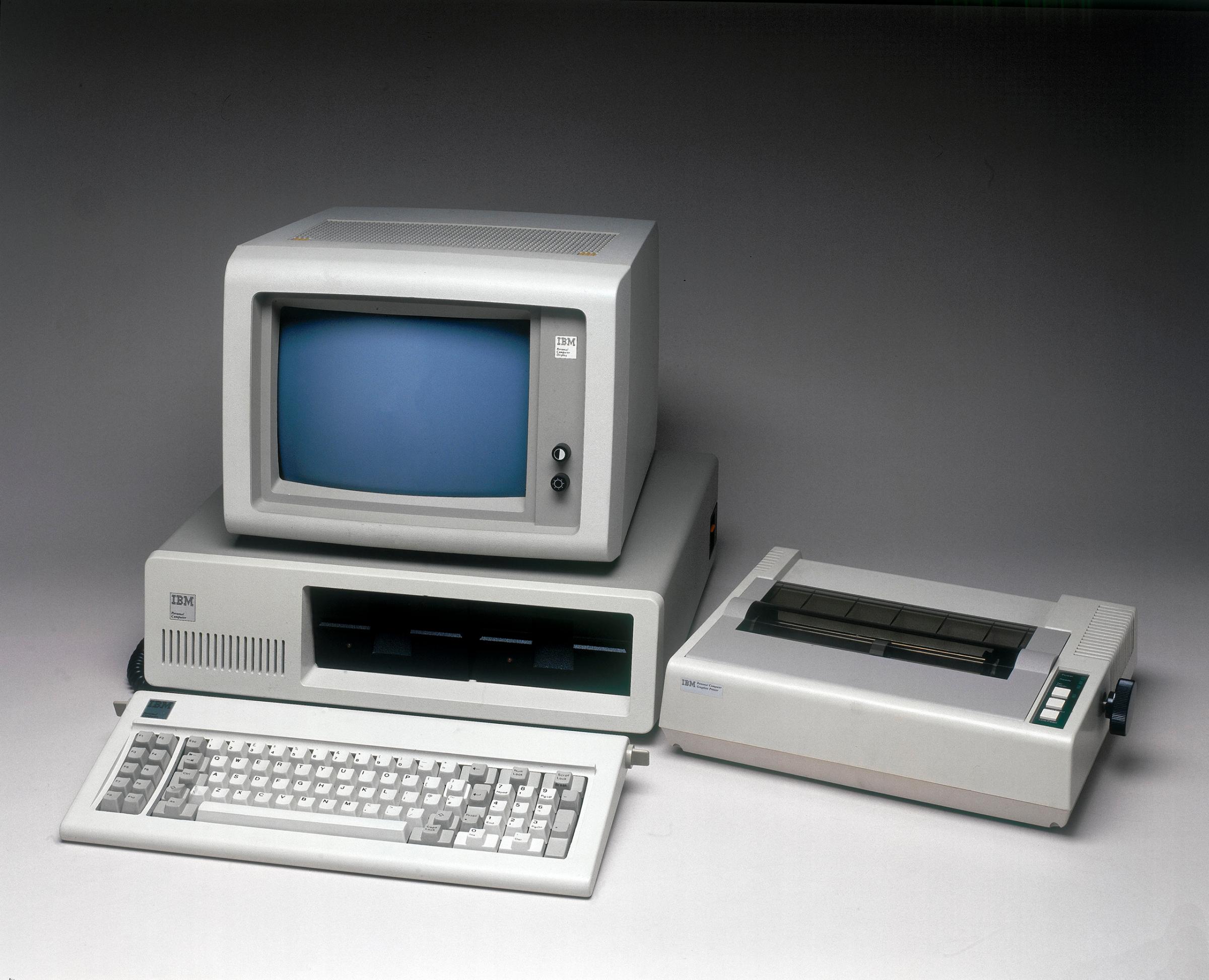
What would the computer market look like today without the IBM PC? Sure, the world had personal computers before the 5150 was introduced in 1981. But IBM’s sales pitch—bringing Big Blue’s corporate computing prowess into the home—helped make this a wildly successful product. Even more influential than the 5150 itself was Big Blue’s decision to license its PC operating system, DOS, to other manufacturers. That led to the birth of “IBM Compatibles,” the forerunner to almost all non-Apple PCs out there today.
45. Victrola Record Player

Though the phonograph was invented in 1877, it was the Victor Talking Machine Company’s Victrola that first made audio players a staple in most people’s homes. The device’s amplifying horn was hidden inside a wooden cabinet, giving it the sleek look of a sophisticated piece of furniture. Records by classical musicians and opera singers were popular purchases for the device. Eventually, the Victor Talking Machine Company would be bought by RCA, which would go on to become a radio and television giant.
44. Regency TR-1 Transistor Radio
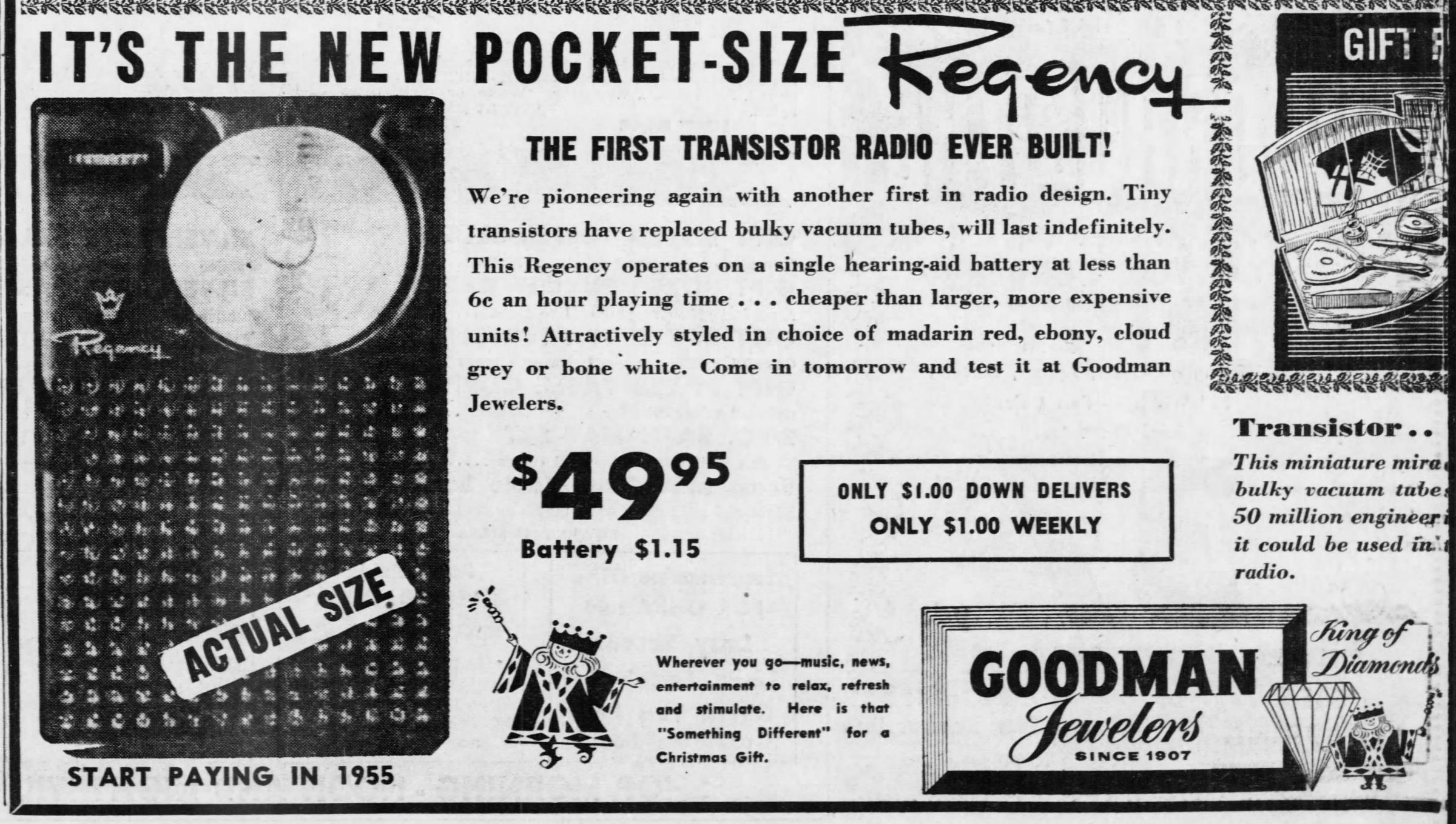
The Regency’s pocket radio was the first consumer gadget powered by transistors, ushering in an age of high-tech miniaturization. A post-WWII innovation developed by Texas Instruments (which had been making devices for the Navy) and Industrial Development Engineering Associates (which previously put out television antennas for Sears), the $49.95, 3-by-5-inch, battery-powered portable was built on technology developed by Bell Labs. From the transistors that amplified the radio signal to the use of printed circuit boards that connected the components to the eye-catching design, many factors conspired to make the TR-1 a holiday must-buy after its November 1954 launch. And as revolutionary as all this tech was, it only scratches the surface of how the Regency — by ushering in truly portable communications — changed the world overnight.
43. Kodak Brownie Camera
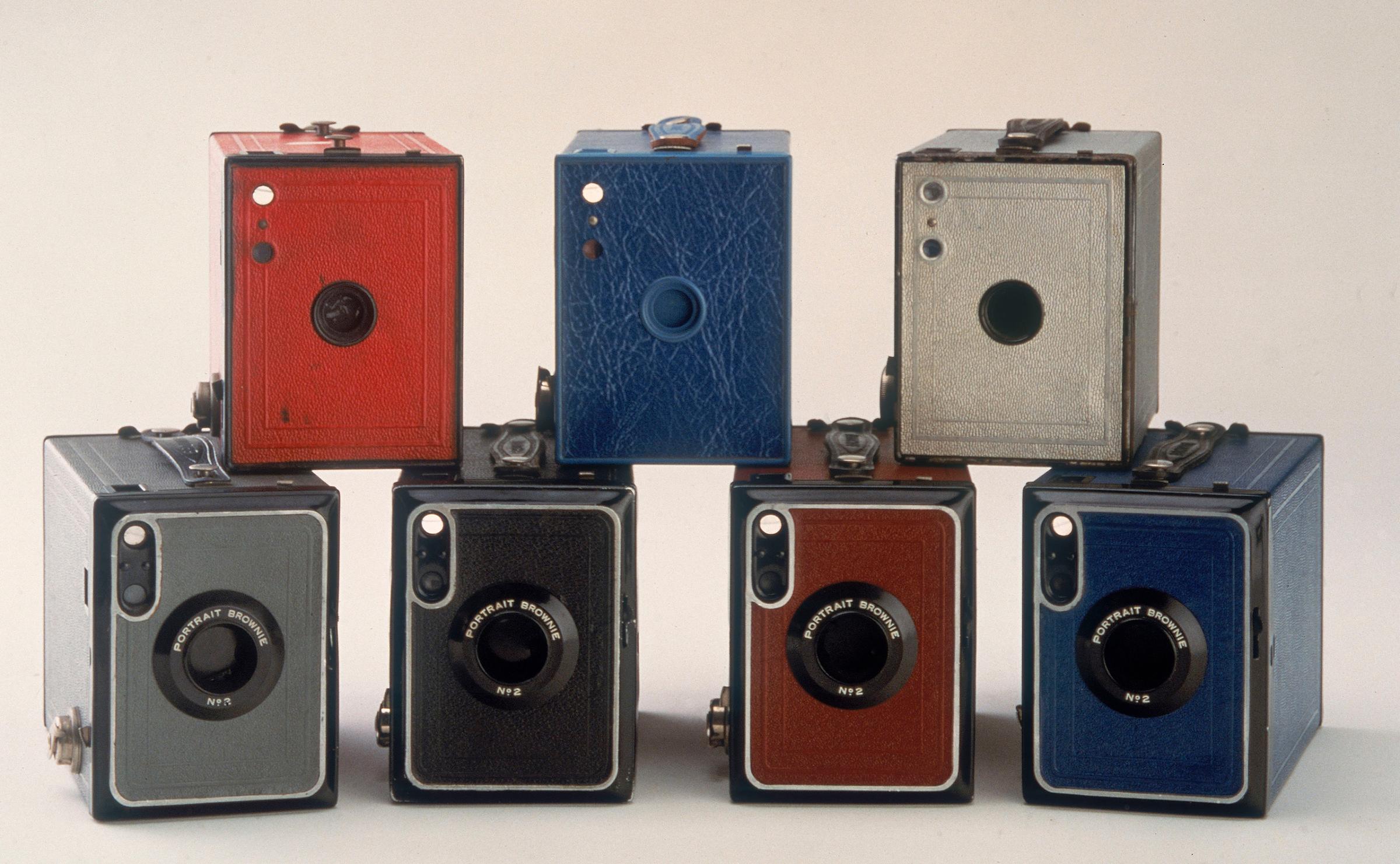
Marketed toward children, carried by soldiers, and affordable to everyone, this small, brown leatherette and cardboard camera introduced the term “snapshot” through its ease of use and low cost. Priced at just $1 (with film that was similarly inexpensive) when it was introduced in February 1900, the Brownie took cameras off tripods and put them into everyday use. For Kodak, the low-cost shooter was the hook that allowed the company to reel in money through film sales. And for the rest of the world, it helped captured countless moments and shape civilization’s relationship to images.
42. Apple iPod

There were MP3 players before the iPod, sure, but it was Apple’s blockbuster device that convinced music fans to upgrade from their CD players en masse. The iPod simultaneously made piracy more appealing, by letting people carry their thousand-song libraries in their pockets, while also providing a lifeline to the flailing music industry with the iTunes Store, which eventually became the world’s biggest music retailer. The iPod’s importance extends far beyond music. It was an entire generation’s introduction to Apple’s easy-to-use products and slick marketing. These people would go on to buy MacBooks, iPhones and iPads in droves, helping to make Apple the most valuable technology company in the world.
41. Magic Wand

A few years after a 2002 episode of Sex and the City revealed the electric neck massager’s cultish adoption as a vibrator, Hitachi dropped its brand from the device. But only in name: the Magic Wand—in service since the late-1960s—likely remains the best-known product stateside made by the $33.5 billion Japanese company. (Hitachi makes everything from aircraft engines to defense equipment, but perhaps nothing as personally stimulating.) Though sex therapists and fans have extolled the Wand’s virtues by analogizing it to cars (the Cadillac, the Rolls Royce), it more closely resembles a microphone, with a white plastic shaft—the wand—and a vibrating head—presumably, the magic.
40. Canon Pocketronic Calculator
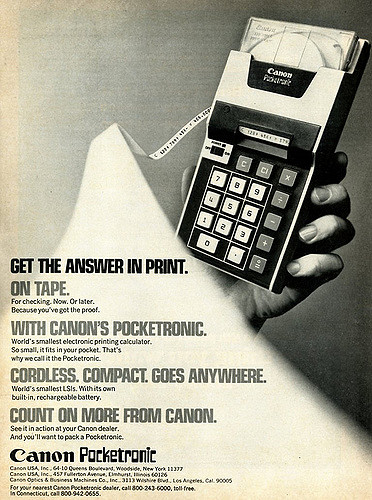
All business? Hardly. If you trace the path of technology far enough, iconic adding machines like this 1970 classic blazed the trail for the smartphones we’re packing today. Selling for $345 at its launch (a cool $2,165 today), this calculator was built around three circuits that let it add, subtract, multiply, and divide. Thirteen rechargeable battery cells were crammed into the casing to power the calculations, with results spat out onto thermal paper. After the Pocketronic’s launch, circuitry quickly miniaturized and prices shrank to match. Within five years, comparable devices cost just $20, and the first shots were fired in tech’s pricing wars.
39. Philips N1500 VCR

Though it took a long, winding road to mass market success, the videocassette recorder, or VCR, got its start in 1972 with Philips’ release of the N1500. Predating the BetaMax versus VHS format war, the N1500 recorded television onto square cassettes, unlike the VCRs that would achieve mass market success in the 1980s. But featuring a tuner and timer, Philips device was the first to let television junkies record and save their favorite programs for later. But that kind of convenience didn’t come cheap. Originally selling in the U.K. for around £440, it would cost more than $6,500 today. That’s the equivalent of 185 Google Chromecasts.
38. Atari 2600
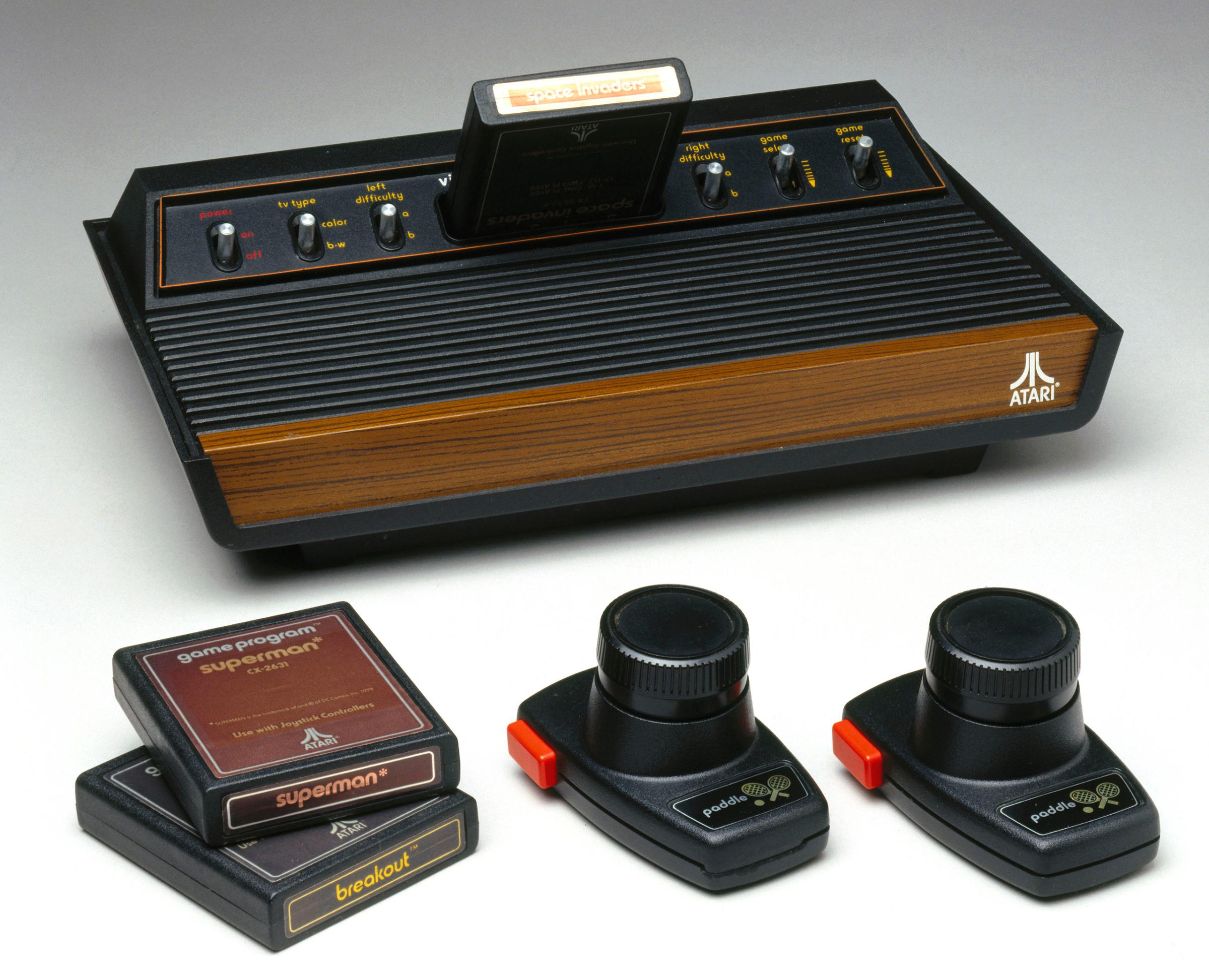
Its blocky 8-bit graphics looked nothing like the lavish, rousing illustrations on its game jackets, but the black-and-faux-wood Atari 2600 game console was the first gaming box to stir the imaginations of millions. It brought the arcade experience home for $199 (about $800 adjusted for inflation), including a pair of iconic digital joysticks and games with computer-controlled opponents–a home console first. It sold poorly in the months after its launch in September 1977, but when games like Space Invaders and Pac-Man arrived a few years later, sales shot into the millions, positioning Atari at the vanguard of the incipient video gaming revolution.
37. US Robotics Sportster 56K Modem

Beep boop bop beep. Eeeeeeerrrrrrroooooooahhhh ba dong ba dong ba dong psssssssssssh. In the days before broadband, that was the sound the Internet made. Dial-up modems, like the US Robotics Sportster, were many families’ first gateway to the Web. Their use peaked around 2001, as faster alternatives that carried data over cable lines arrived. But millions of households still have an active dial-up connection. Why? They’re cheaper and accessible to the millions of Americans who still lack broadband access.
36. Nintendo Entertainment System

Nintendo’s debut front-loading, rain-gray console showed up just in time to save the games industry from its excesses, arriving a few years after a crash that capsized many of the field’s biggest players. The NES was to video gaming what The Beatles were to rock and roll, singlehandedly resuscitating the market after it launched in 1983. The NES heralded Japan’s dominance of the industry, establishing indelible interface and game design ideas so archetypal you can find their DNA in every home console hence.
35. Nintendo Game Boy
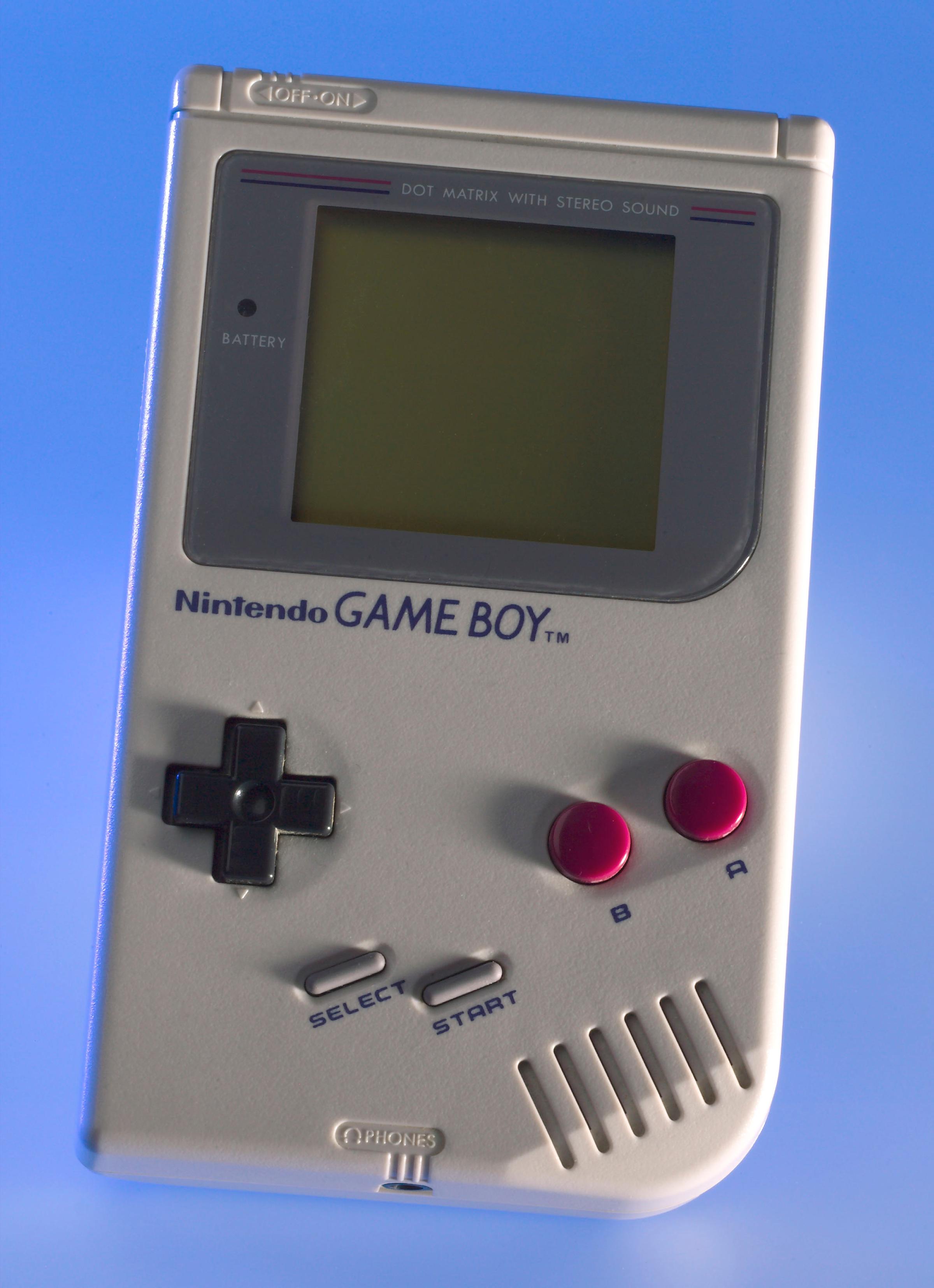
It’s a wonder we didn’t destroy our eyes gaming on the Game Boy’s tiny 2.6-inch olive green screen, considering how many Nintendo sold (over 200 million when you include the souped-up subsequent Game Boy Advance.) A chunky, somewhat dismal looking off-white object with garish cerise-colored buttons, Nintendo’s 1989 handheld invented the modern mobile game. Its modest power and anemic screen forced developers to distill the essence of genres carried over from consoles. The result: A paradigm shift in mobile game design that’s influenced everything from competing devoted handhelds to Apple’s iPhone.
34. IBM Selectric Typewriter

Turning the plodding, jam-prone mechanical typewriter into a rapid-fire bolt of workplace ingenuity, this Mad Men-era machine worked at the “speed of thought” and marked the beginning of the computer age. The 1961 Selectric model began by introducing changeable typefaces through the typewriter’s iconic, interchangeable, golf-ball-shaped print head. Then in 1964, a magnetic tape model gave the typewriter the ability to store data, arguably making it the world’s first word processor. So in 1965, when the IBM System/360 mainframe rolled out, it only made sense that the Selectric’s keyboard served as the computer’s primary input device.
33. Motorola Bravo Pager

Long before cellphones became commonplace, beepers were the way to stay in touch on the go. Early pagers allowed users to send codes to one another, like 411 for “what’s going on” or 911 to indicate an emergency (for obvious reasons). Message recipients would respond by calling the sender via telephone. The Bravo Flex, introduced in 1986, became the best-selling pager in the world, according to Motorola, giving many people their first taste of mobile communication. It could store up to five messages that were 24 characters in length. By the early 1990s, having a pager became a status symbol, paving the way for more advanced communication devices like the two-way pager, the cellphone, and eventually the smartphone.
32. JVC VideoMovie Camcorder
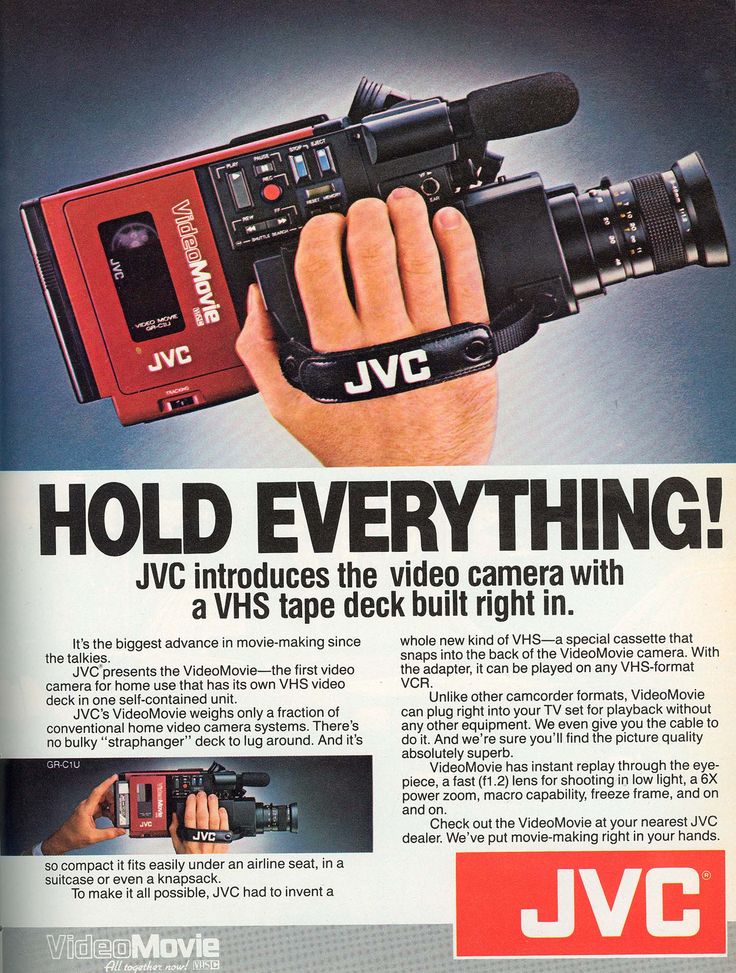
From Rodney King and citizen journalism to America’s Funniest Home Videos and unscripted television, the camcorder did as much to change the world from 1983 to 2006 as it did to record it. And though the 1984 JVC VideoMovie wasn’t the first model on the market, it became iconic when Marty McFly lugged it around in 1985’s Back to the Future. The ruby red model was the first to integrate the tapedeck into the camera. (Previously, home videographers had to wear a purse-like peripheral that housed the cassette.) Eventually, camcorders were displaced by flash memory-packing Flip Video cameras and, later, smartphones. But their impact will live forever, like the movies they captured.
31. Motorola Droid
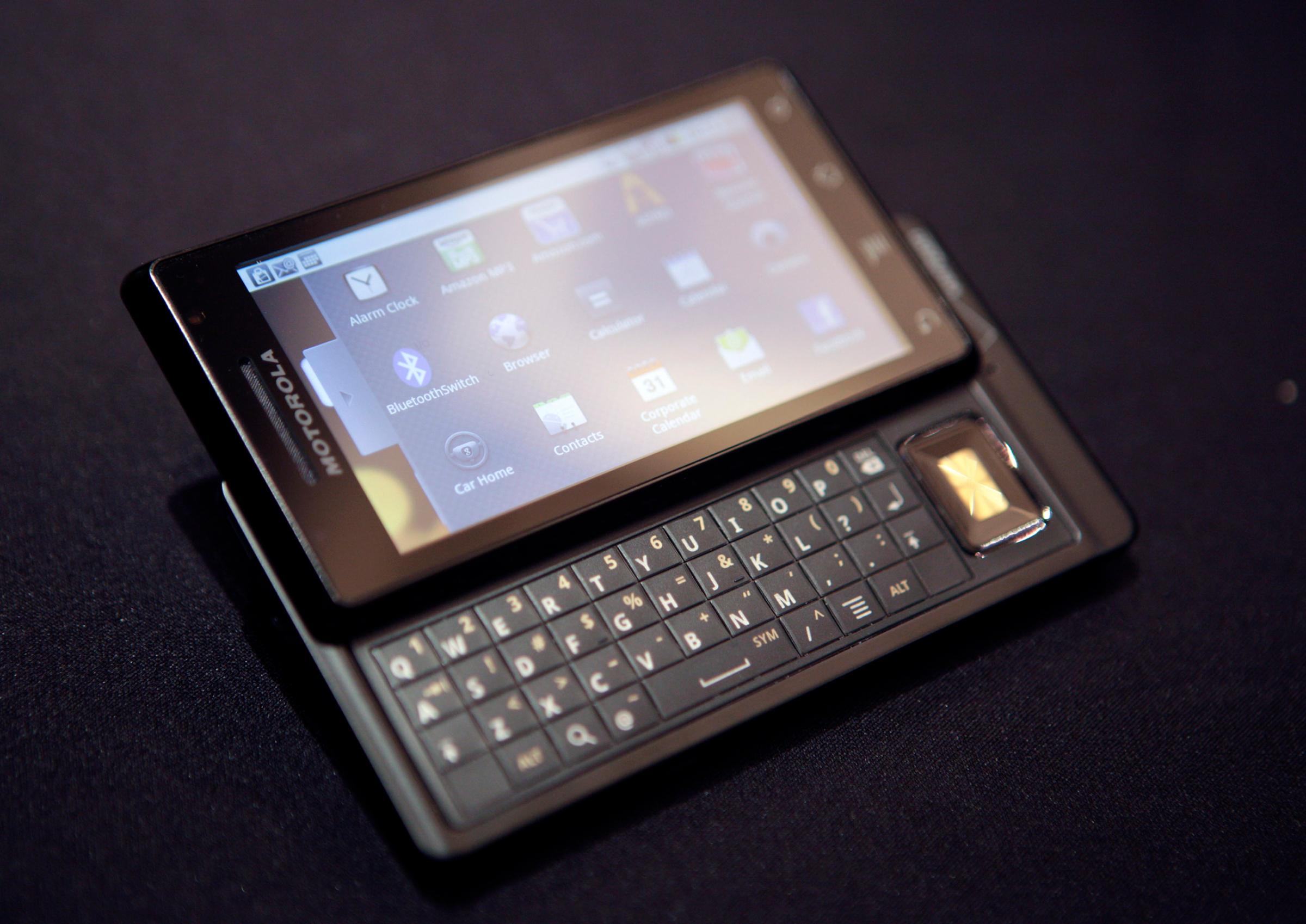
Other Android-powered smartphones existed before the Droid launched in 2009, but this was the first one popular enough to push Android into the spotlight. It cemented Google’s Android platform as the iPhone’s biggest competition. (And sowed a rift between Apple and Google, which had previously been close allies.) Verizon is said to have poured $100 million into marketing the device. It seemingly paid off—although neither companies disclosed sales figures, analysts estimated that between 700,000 and 800,000 Droids were sold in roughly one month following its launch.
30. IBM Thinkpad 700C
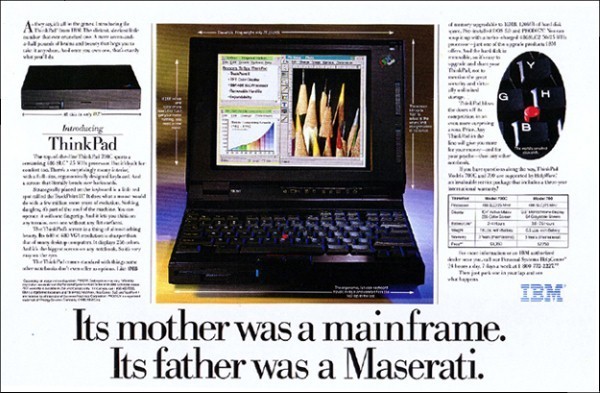
Few products are so iconic that their design remains largely unchanged after more than 20 years. Such is the case with the ThinkPad line of laptops, which challenged the dominance of Apple and Compaq in the personal computing industry during the early 1990s by introducing features that were considered to be innovative at the time. (It’s also part of the permanent collection at New York City’s MoMA.) One of the earliest in the line, the ThinkPad 700C, came with a 10.4-inch color touch screen, larger than displays offered by other competing products. Its TrackPoint navigation device and powerful microprocessors were also considered to be groundbreaking in the early 1990s.
29. TomTom GPS
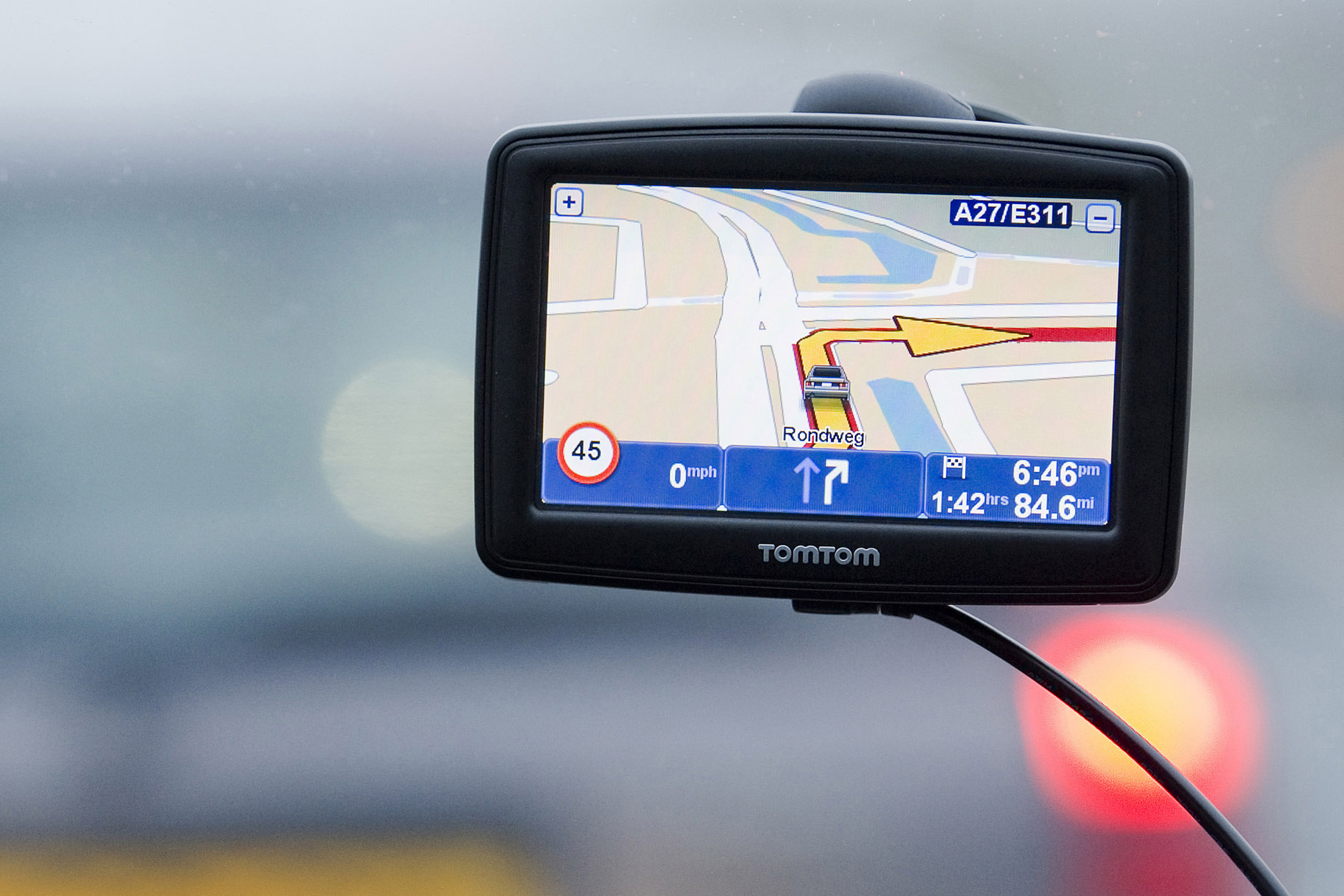
Like the early Internet, GPS started life as a government-funded innovation. It wasn’t until President Bill Clinton decided in 2000 to fully open the network that it became a massive commerical success. (He was filling a promise made by Ronald Reagan.) Shortly afterwards, companies from TomTom to Garmin introduced personal GPS devices for automotive navigation (like the Start 45) and other uses. Later, combining GPS technology with smartphones’ mobile broadband connections gave rise to multibillion dollar location-based services like Uber.
28. Phonemate 400 Answering Machine
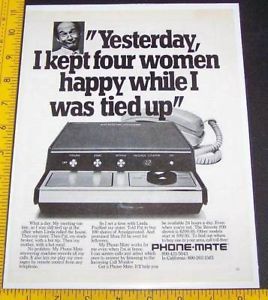
The idea of an answering machine weighing more than a few ounces may sound ludicrous by today’s standards. But in 1971, PhoneMate’s 10-pound Model 400 was viewed as a glimpse of the future. The Model 400 was considered the first answering machine designed for the home during a time when the technology was only commonly found in workplaces. It held roughly 20 messages and enabled owners to listen to voicemails privately through an earphone.
27. BlackBerry 6210

BlackBerry made pocket-sized gadgets for accessing email on-the-go before the 6210, but this was the first to combine the Web-browsing and email experience with the functionality of a phone. The 6210 let users check email, make phone calls, send text messages, manage their calendar, and more all from a single device. (Its predecessor, the 5810, required users to attach a headset in order to make calls.) All told, the 6210 was a pivotal step forward for mobile devices.
26. Apple iPad
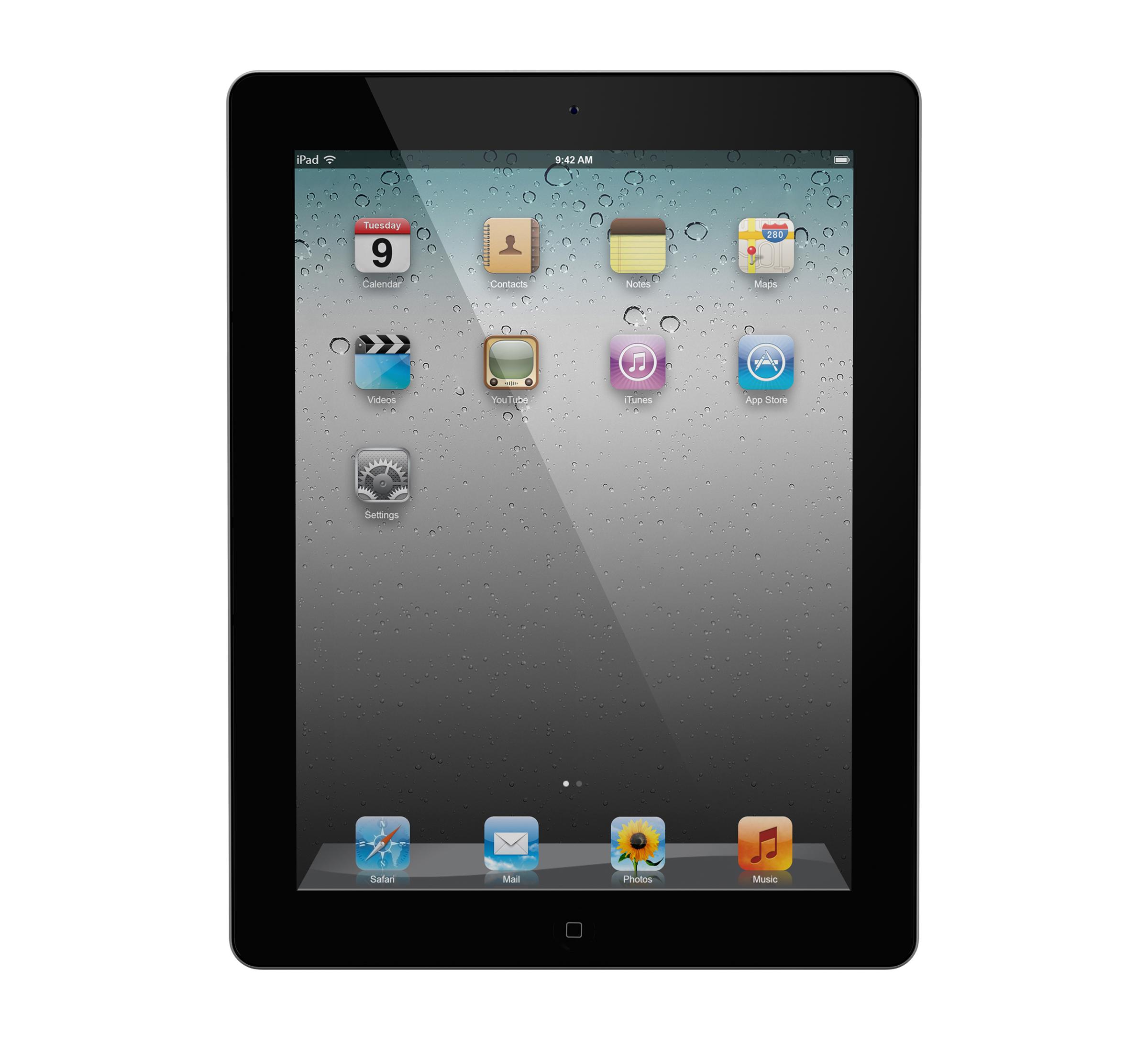
The iPad’s 2010 launch spurred a slew of headlines questioning whether or not the tablet would replace the laptop as the most important personal computer. Apple’s iPad wasn’t the first tablet, but it was radically different from what came before. Earlier devices, like the GriDPad and Palm Pilot, had smaller touchscreens users had to operate with a stylus. Microsoft unveiled a tablet that ran Windows XP in 2002. The problem, however, was that these devices didn’t have interfaces that were well-suited for touch, and they were often clunkier and larger than the iPad. Apple sold 300,000 iPads on its first day in stores, roughly matching the iPhone’s day-one numbers, and has gone on to dominate the market.
25. Commodore 64
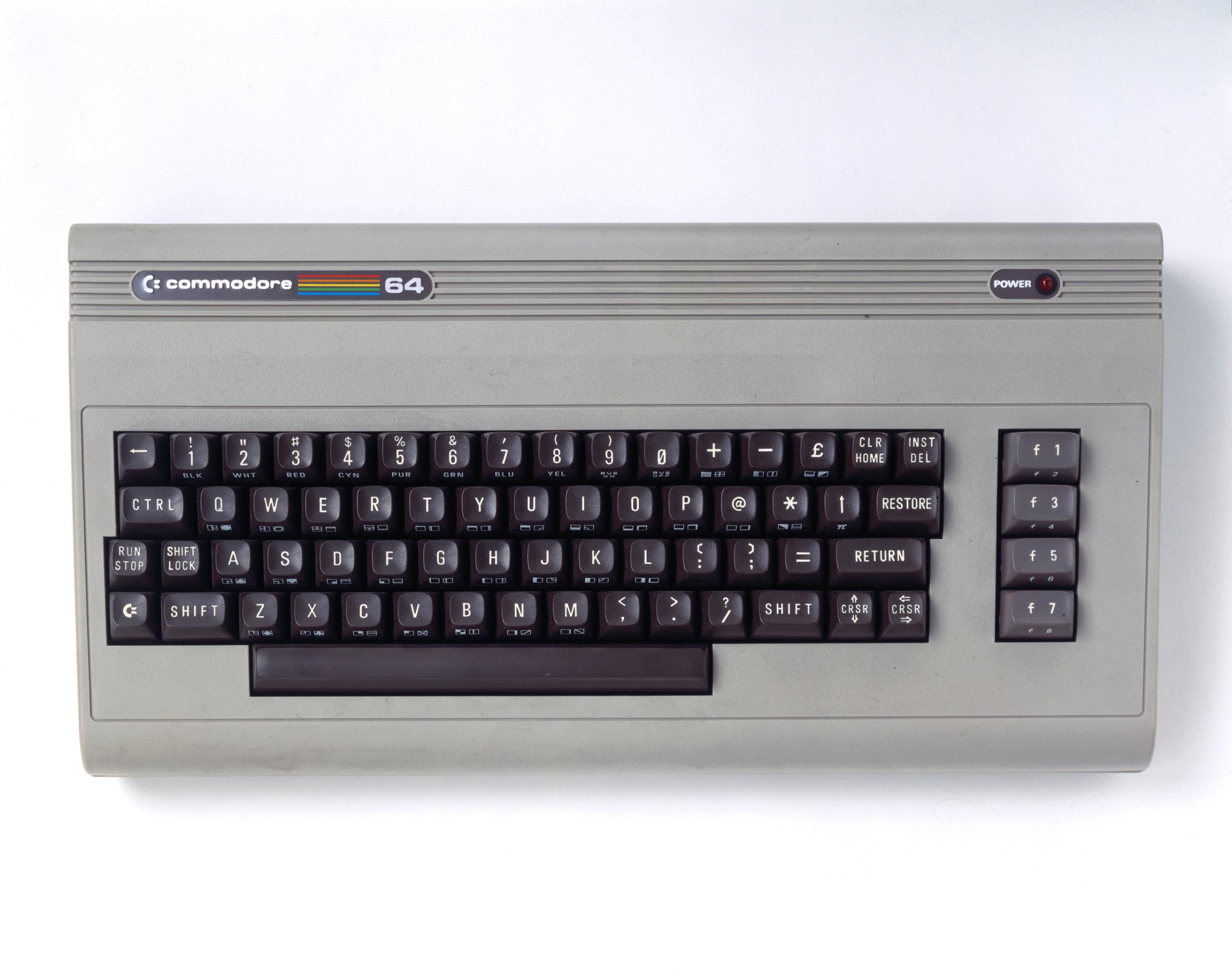
Commodore’s 8-bit brown and taupe lo-fi 1982 masterpiece ranks with record-keeper Guinness as the best-selling single computer in history. No surprise, as the chunky, relatively affordable keyboard-housed system—users plugged the whole thing into a TV with an RF box—did more to popularize the idea of the personal home computer than any device since. And it promised to make you more popular, too: “My friends are knockin’ down my door, to get into my Commodore 64,” sang a Ronnie James Dio clone in a power-metal ad spot.
24. Polaroid Camera
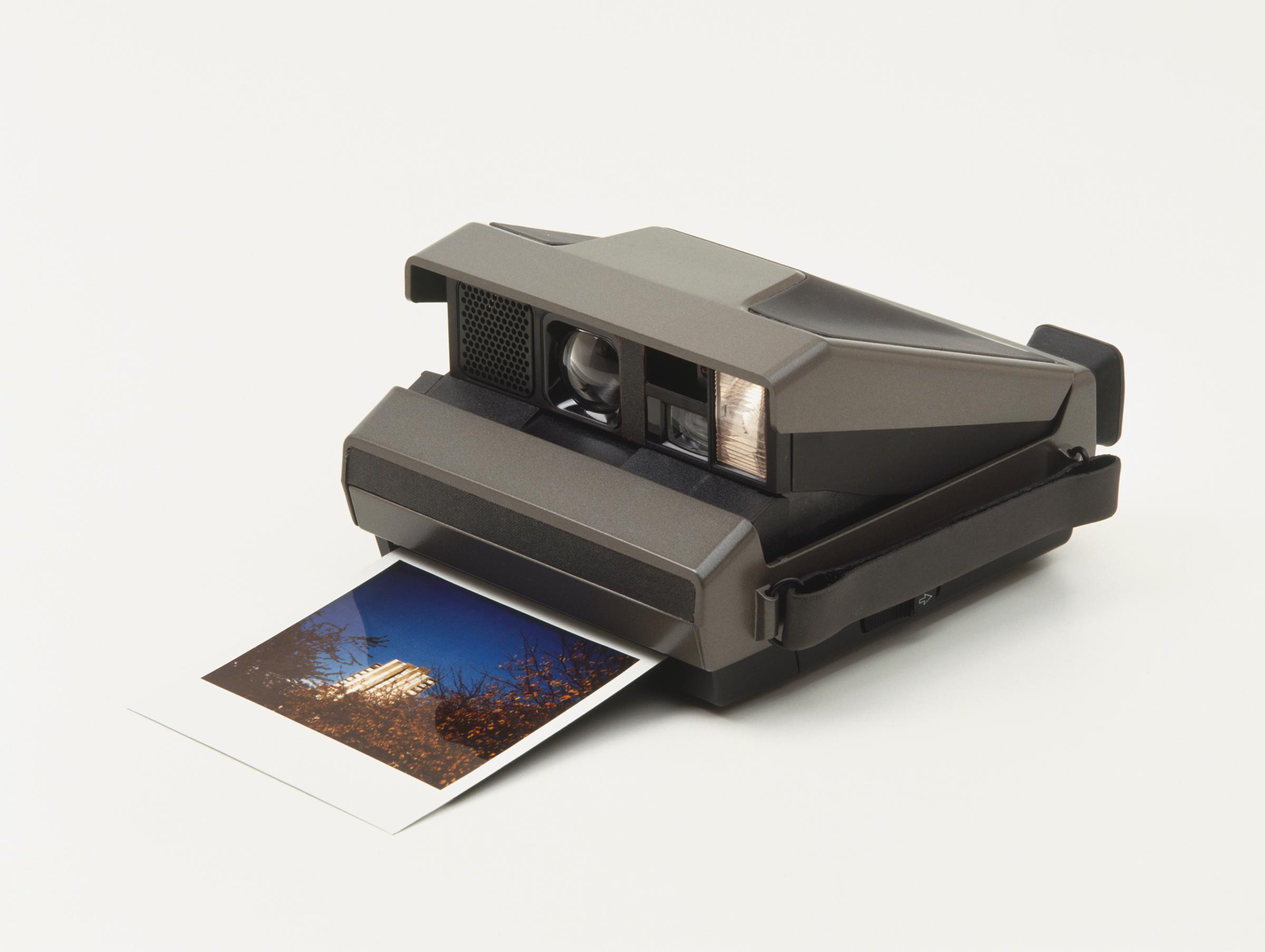
Millennials get plenty of flak over their penchant for instant gratification. But that’s a desire that crosses generations. Need proof? When the first affordable, easy-to-use instant shooter, the Polaroid OneStep Land camera, hit the market in 1977, it quickly became the country’s best-selling camera, 40 years before “Millennials” were a thing. That Polaroid photographs so dominated 80s-era family albums and pop culture gives the square-framed, often off-color snaps a retro appeal that today is celebrated by enthusiasts and aped by billion-dollar apps like Instagram.
23. Amazon Kindle
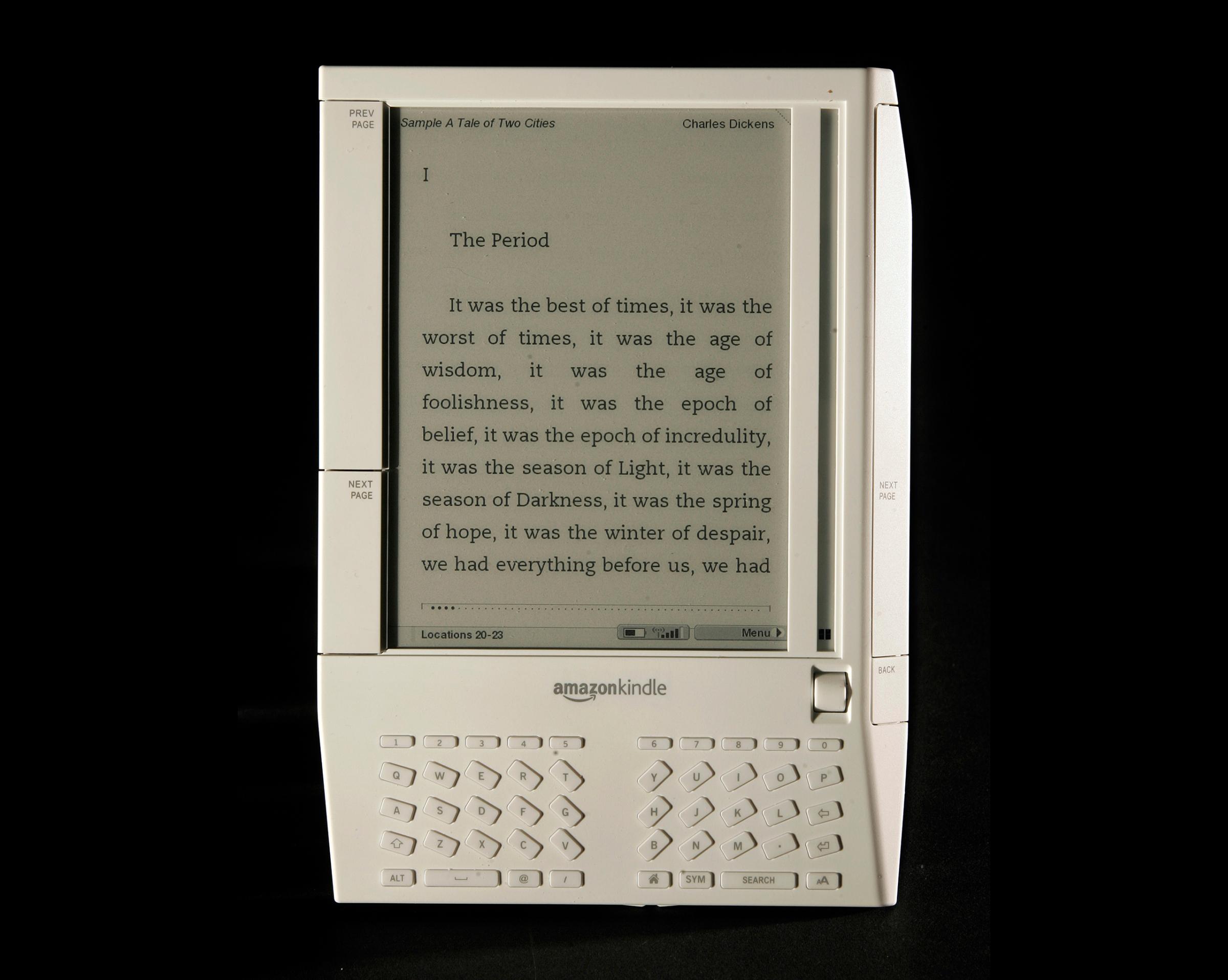
Amazon began as an online bookstore, so it’s no surprise that its most influential piece of hardware changed the way we read. The Kindle quickly took over the e-reader market, becoming the best-selling product in the history of Amazon.com in 2010. Follow-up hardware ventures, such as the Kindle Fire Tablet and Echo home assistant, have also found success. The Kindle also marks the beginning of Amazon’s evolution as a digital media company. Today the company has digital stores for music, movies and video games in addition to books.
22. TiVo

“How much would you pay never to see another talking frog or battery-powered bunny again?” this magazine asked when the first TiVo was announced in 1999. The box, called a “Personal Video Recorder” at the time, is the forerunner to today’s DVRs. TiVo owners could record shows picked from a digital menu (no more confusing VCR settings) and pause or rewind live television. Much to TV execs’ consternation, the TiVo let viewers of recorded programming breeze past commercials. That the TiVo made it easier than ever to record a TV show gave rise to “time-shifting,” or the phenomenon of viewers watching content when it fits their schedule.
21. Toshiba DVD Player
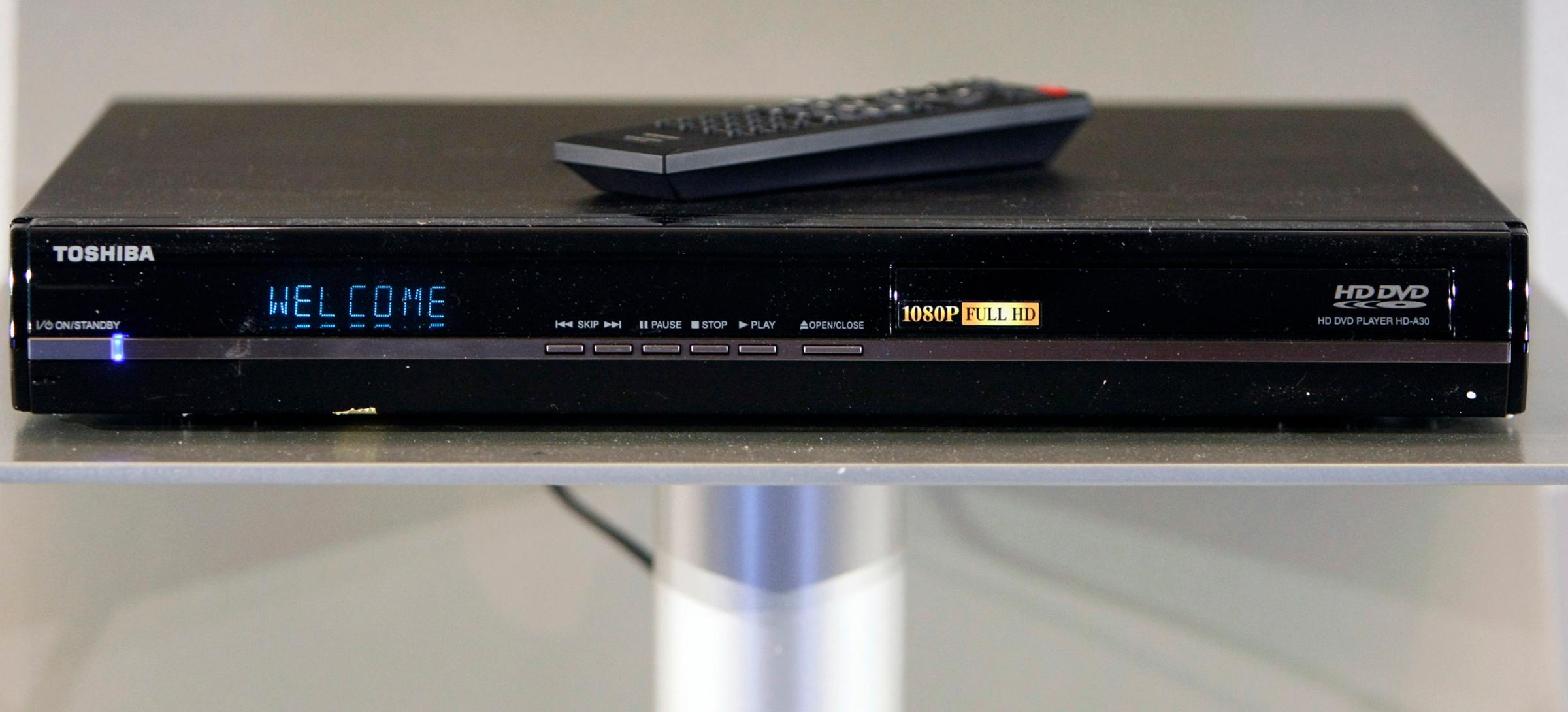
Electronics manufacturers were already fiddling with standalone optical storage in the early 1990s, but the first to market was Toshiba’s SD-3000 DVD player in November 1996. Obsoleting noisy, tangle-prone magnetic tape (as well as the binary of “original” versus “copy”) the DVD player made it possible to watch crisp digital movies off a tiny platter just 12 centimeters in diameter—still the de facto size for mainstream optical media (like Blu-ray) today.
20. Sony PlayStation

You’d be hard pressed to name a single PlayStation feature that by itself transformed the games industry. It’s been Sony’s obsession with compacting high-end tech into sleek, affordable boxes, then making all that power readily accessible to developers, that’s made the PlayStation family an enduring icon of the living room. Part of Sony’s triumph was simply reading the demographic tea leaves: The company marketed the PlayStation as a game system for grownups to the kids who’d literally grown up playing Atari and Nintendo games. And that helped drive the original system, released in 1994, to meteoric sales, including the PlayStation 2’s Guinness record for bestselling console of all time—a record even Nintendo’s Wii hasn’t come close to breaking.
19. Wii

“Thanks to Nintendo’s Satoru Iwata, we’re all gamers now,” went the headline of Wired’s obituary for Nintendo’s beloved president, who died last July. Nothing speaks to Iwata’s legacy more than the company’s game-changing Wii (pun intended). Nintendo’s tiny pearl-white box, released in 2006, and which users engaged with motion control wands, had moms and dads and grandpas and grandmas out of their seats and swinging virtual golf clubs or dancing. No game system has done more to illustrate the omni-generational appeal of interactive entertainment.
18. Jerrold Cable Box
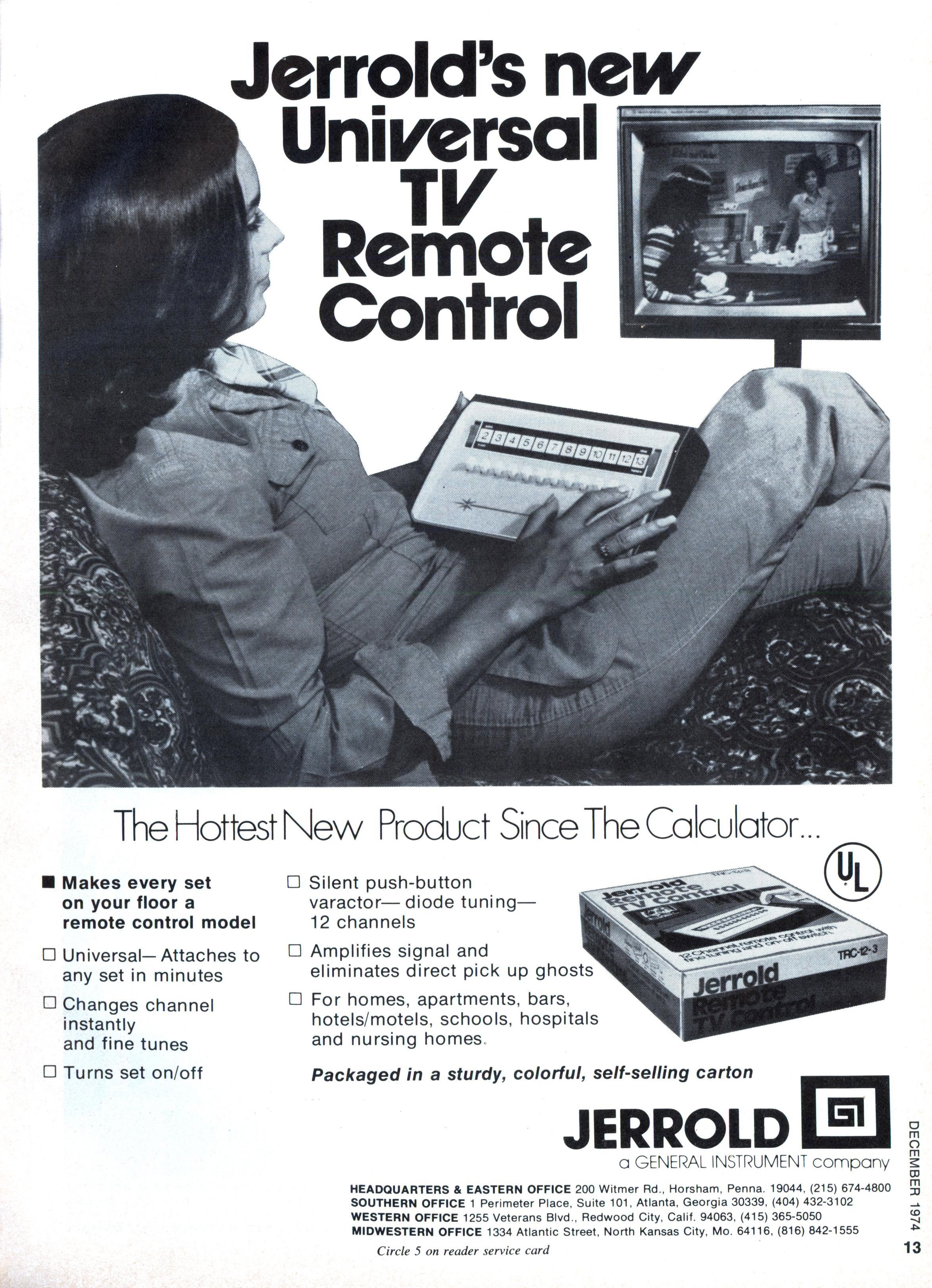
True story: Cable TV was already a thing in the 1950s. Sure, it took Ted Turner in the 1970s and channels like MTV in the 1980s for what we think of as cable TV’s halcyon days to emerge. But decades earlier, the first commercial cable box that would inspire so many others was an unassuming wood-paneled console manufactured by Pennsylvanian company Jerrold Electronics, sporting three-way sliders for dozens of different channels.
17. Nokia 3210
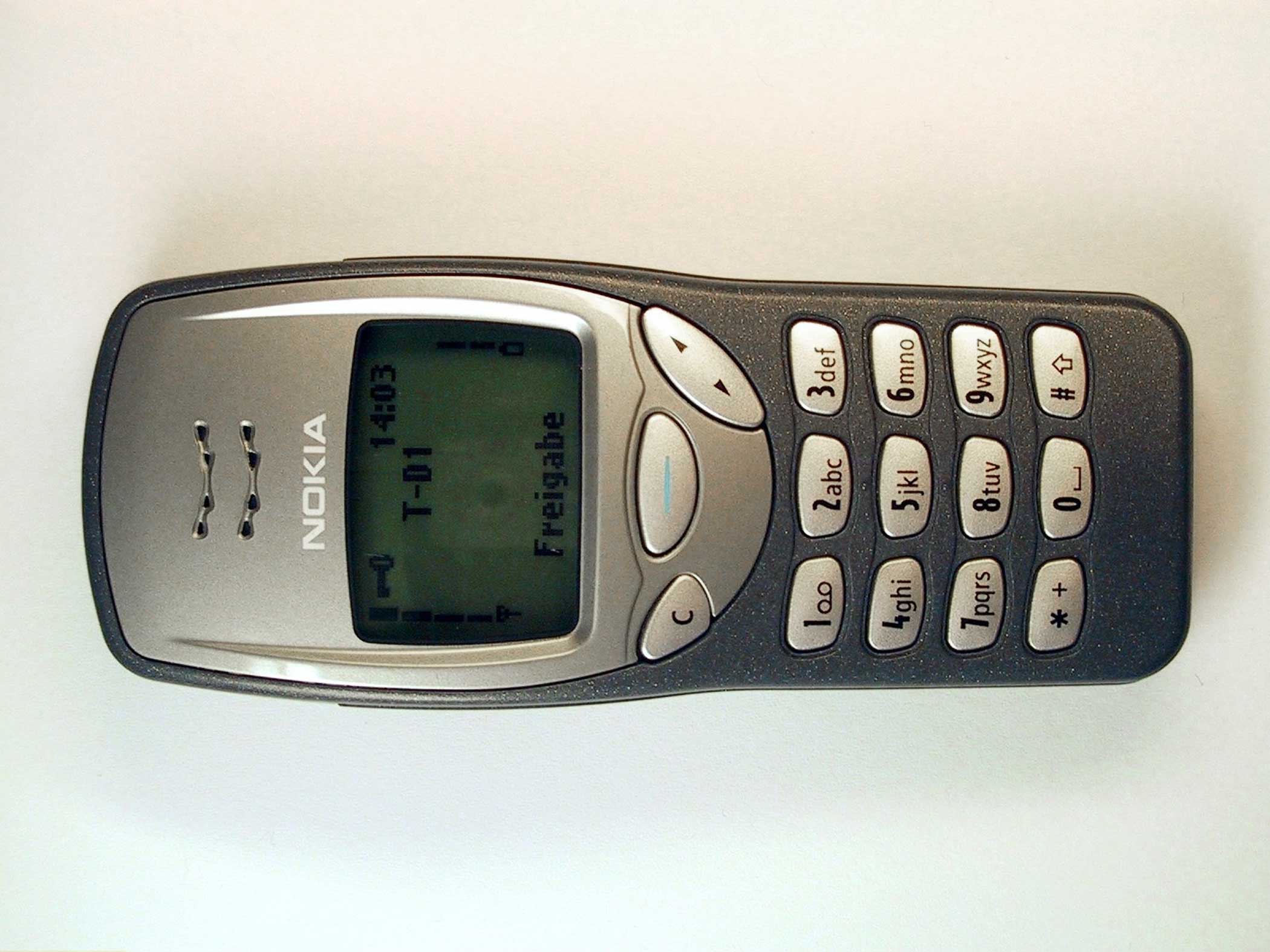
For many, Nokia’s colorful candy bar-shaped 3210 defined the cell phone after it was released in 1999. With more than 160 million sold, it became a bestseller for the Finnish company. The 3210 did more than just introduce the cellphone to new audiences. It also established a few important precedents. The 3210 is regarded to be the first phone with an internal antenna and the first to come with games like Snake preloaded. Gadget reviewers even praised the phone more than 10 years after its launch for its long battery life and clear reception.
16. HP DeskJet

Obsoleting noisy, lousy dot matrix technology, devices like 1988’s HP DeskJet gave computer owners the ability to quietly output graphics and text at a rate of two pages per minute. The DeskJet wasn’t the first inkjet on the market, but with a $995 price tag, it was the first one many home PC users bought. Over the 20 years following the product’s launch, HP sold more than 240 million printers in the DeskJet product line, outputting Christmas letters, household budgets, and book reports by the millions. Even in an increasingly paper-less world, the inkjet’s technology lives on in 3-D printers, which are fundamentally the same devices, only extruding molten plastic instead of dye.
15. Palm Pilot
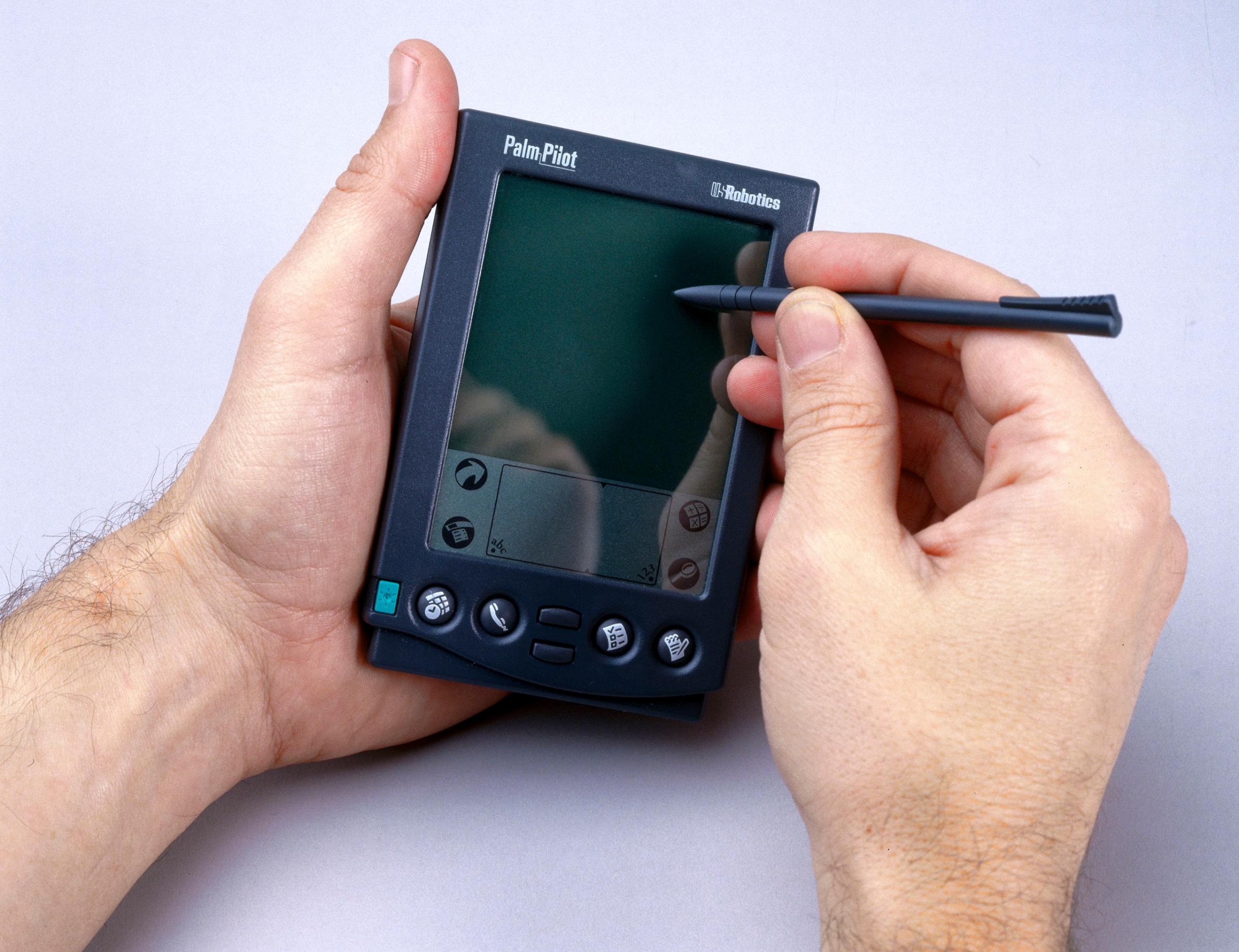
The original Palm Pilot 1000 solidified handheld computing when it launched in 1996, paving the way for BlackBerry and, eventually, today’s smartphone. The “palm top” computer (get it?) came with a monochrome touchscreen that supported handwriting and was capable of syncing data like contacts and calendar entries to users’ computers. It spawned a device category known as the “personal digital assistant,” or PDA. It wasn’t the first such device—the Apple Newton preceded it—but it was the first one people wanted and bought in droves.
14. Motorola Dynatac 8000x
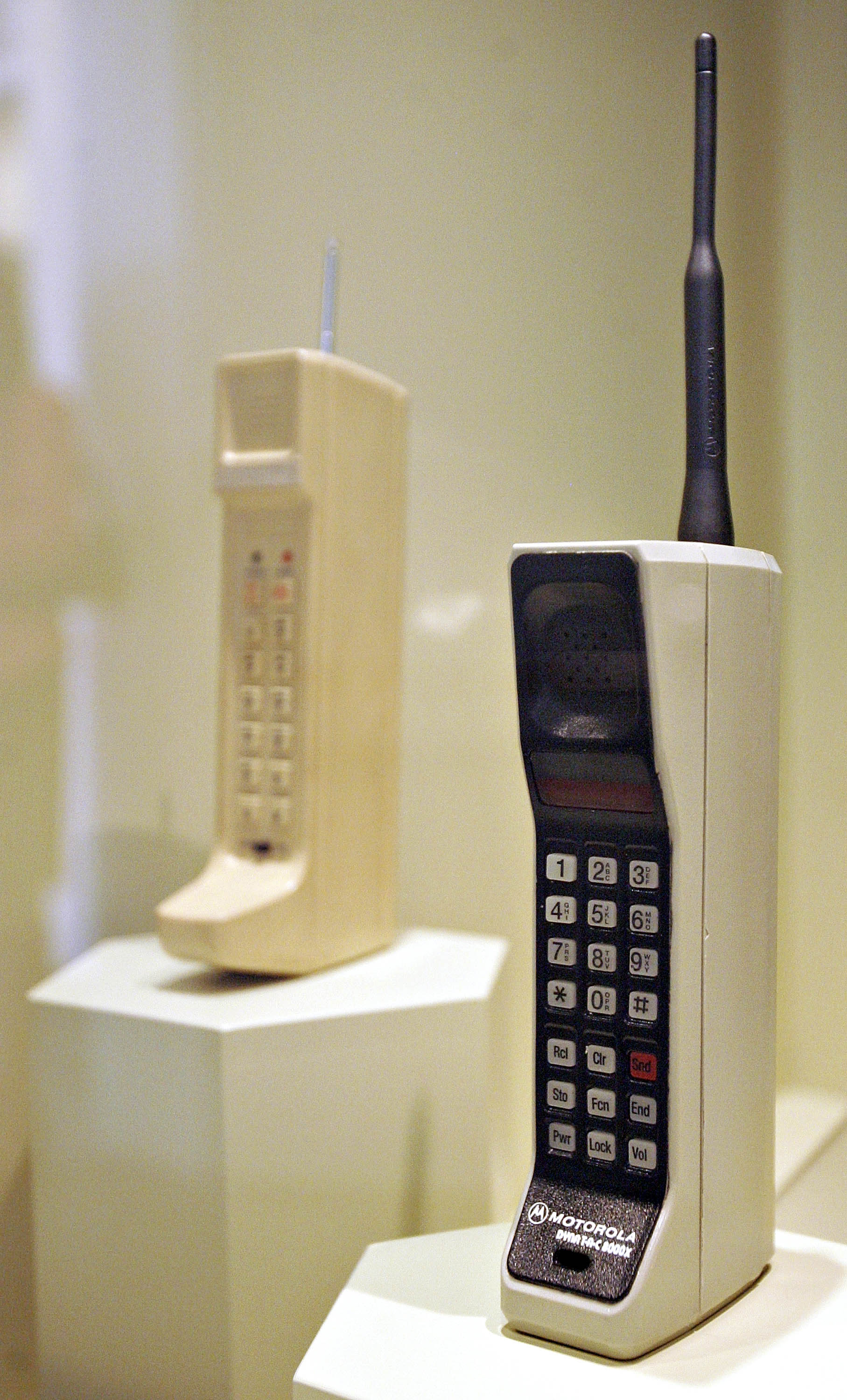
Motorola’s Dynatac 8000x was the first truly portable cellphone when it launched in 1984. Marty Cooper, an engineer with Motorola at the time, first demonstrated the technology by making what’s regarded as the first public cellular phone call from a New York City sidewalk in 1973. (It was both a PR stunt and an epic humblebrag: Cooper called his biggest rival at AT&T.) The Dynatac 8000x weighed nearly two pounds and cost almost $4,000.
13. Apple iBook
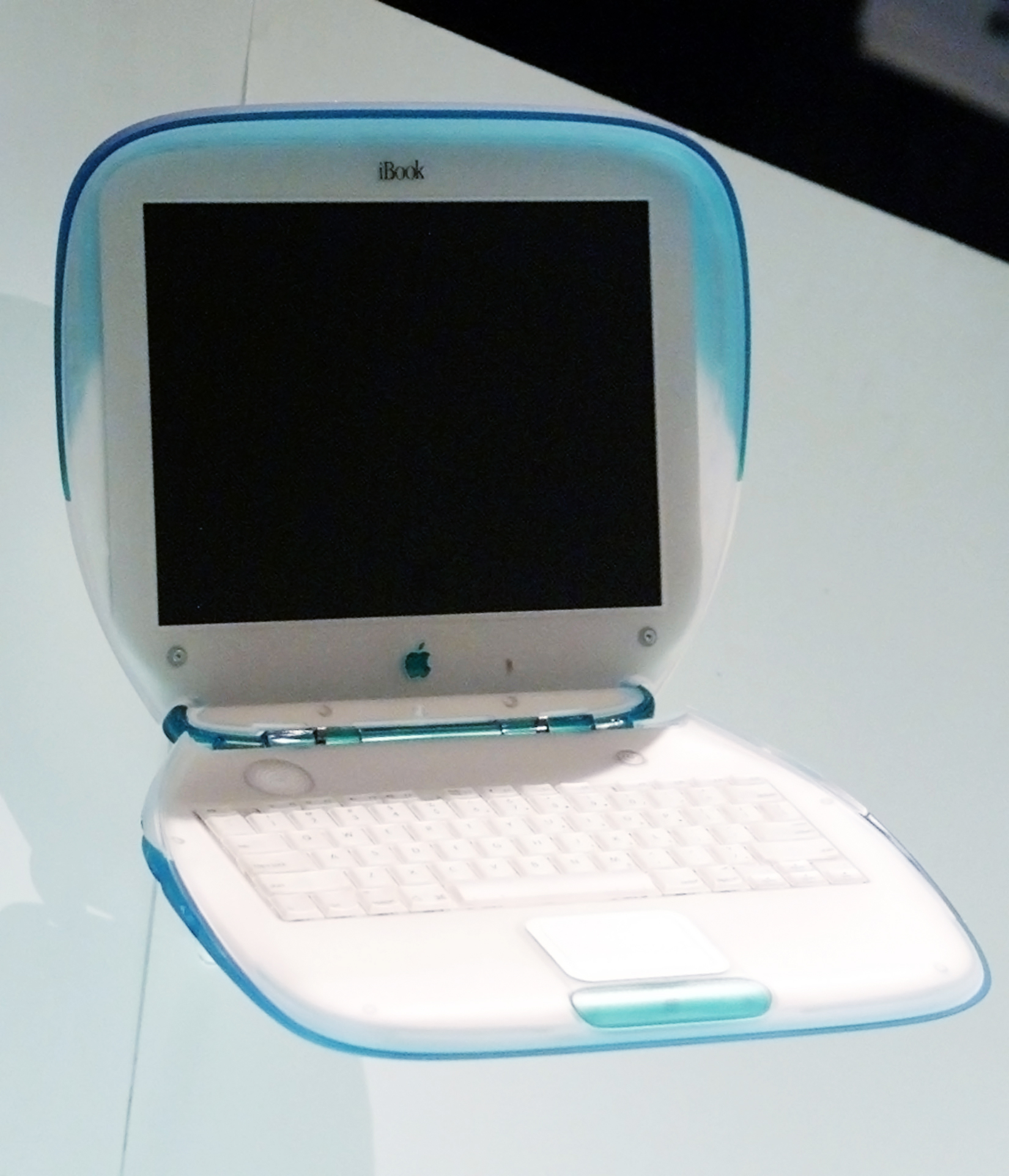
The iBook’s brightly-colored, plastic trim may look dated now, but it was the first laptop to offer wireless networking. Apple’s consumer-oriented portable—for its cool-factor as well as its technology—grew into a serious business. The product’s reveal was a classic example of Steve Jobs’ showmanship at its best. While loading a webpage and showing off the computer’s display at 1999’s MacWorld conference, the Apple co-founder lifted the computer off its table and walked across the stage. The crowd roared in approval. In a gesture, he showed that Wi-Fi was here to stay.
12. Oculus Rift
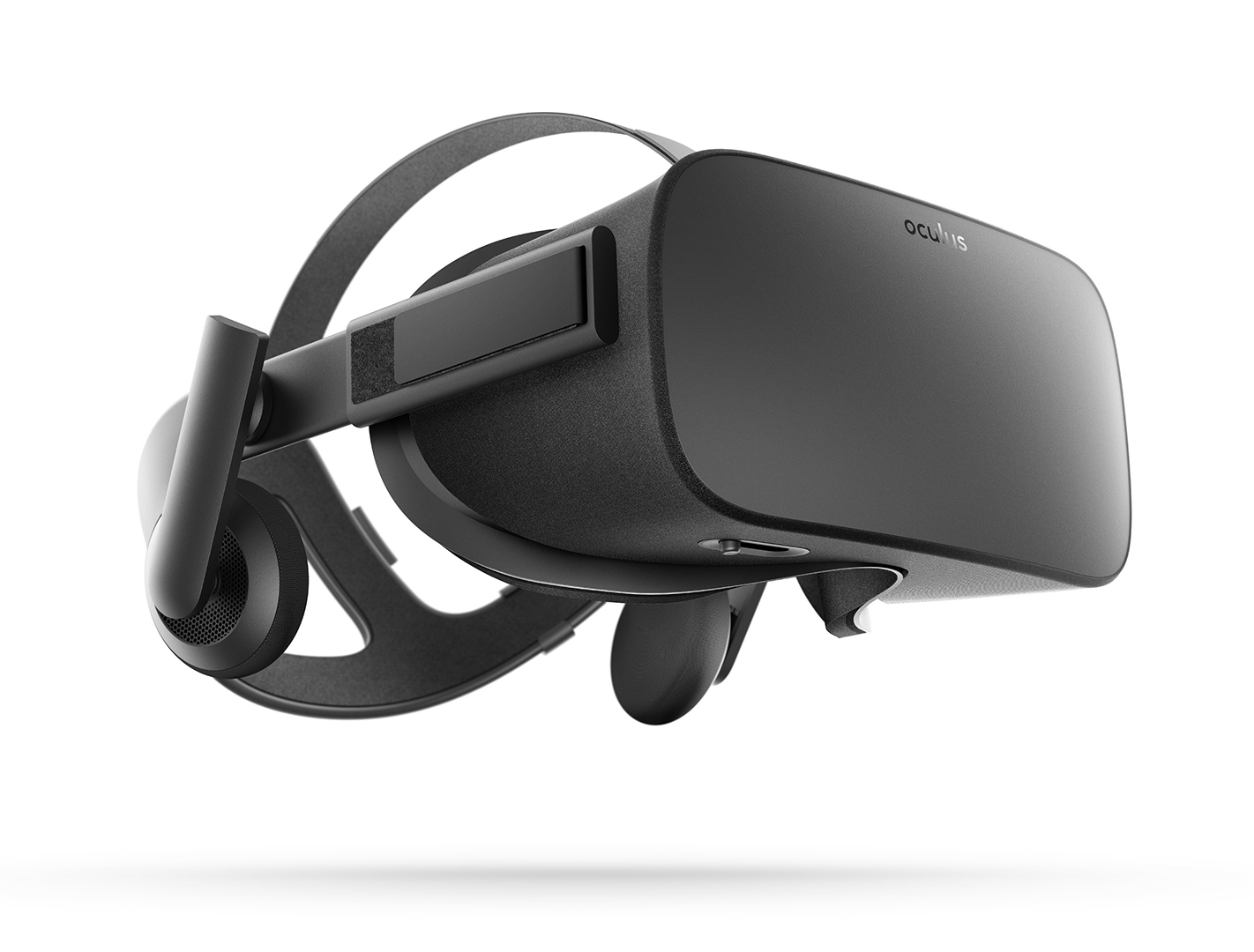
2016’s Oculus Rift virtual reality headset could wind up a total flop and we’d still grant Oculus a special place in computing history. And not just because Facebook paid $2 billion for the device’s parent company foreseeing a future of social interaction and virtual vacationing provided by VR. Whatever happens next, the Rift, along with ebullient creator Palmer Luckey, will be remembered for reinvigorating the notion of strapping awkward-looking things to our faces in trade for the privilege of visiting persuasively real imaginary places.
11. Sony Discman D-50

Following up on the success of the Walkman, Sony unveiled this portable CD player in 1984, just a year after the music industry adopted the format. The device and later portable CD players helped the compact disc usurp cassettes as the dominant music format in the United States in less than a decade.
10. Roku Netflix Player
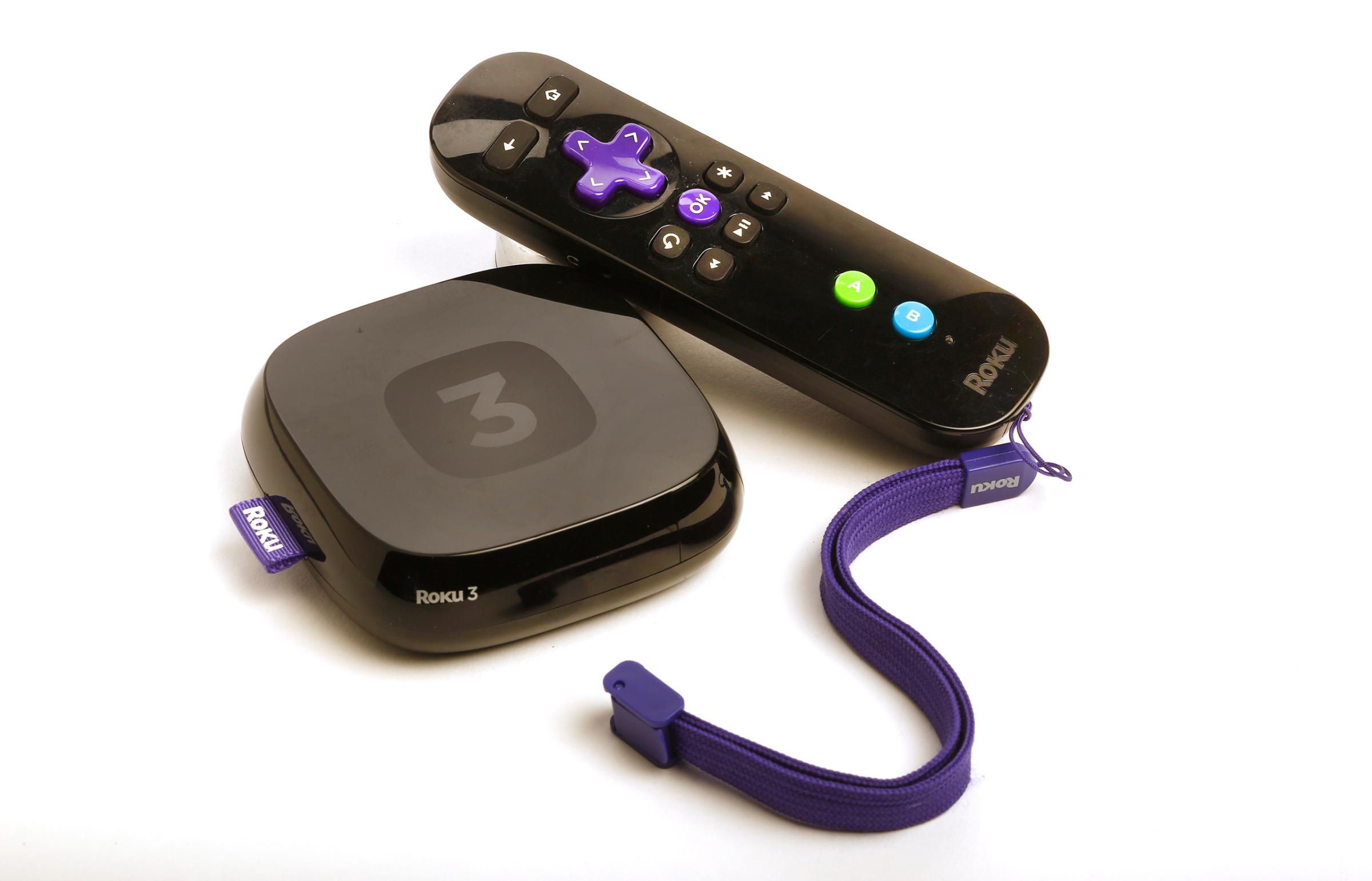
An inexpensive upstart running Linux, Roku’s hockey-puck sized Netflix-and-more video streaming box emerged out of nowhere in 2010 to rally waves of cord-cutters who cancelled their cable. What its chunky remote lacked in features, the box more than made up for in software. While at first Apple struggled to rationalize its comparably barren Apple TV-verse, Roku was offering thousands of channels and the most partnerships with the biggest players.
9. Fitbit
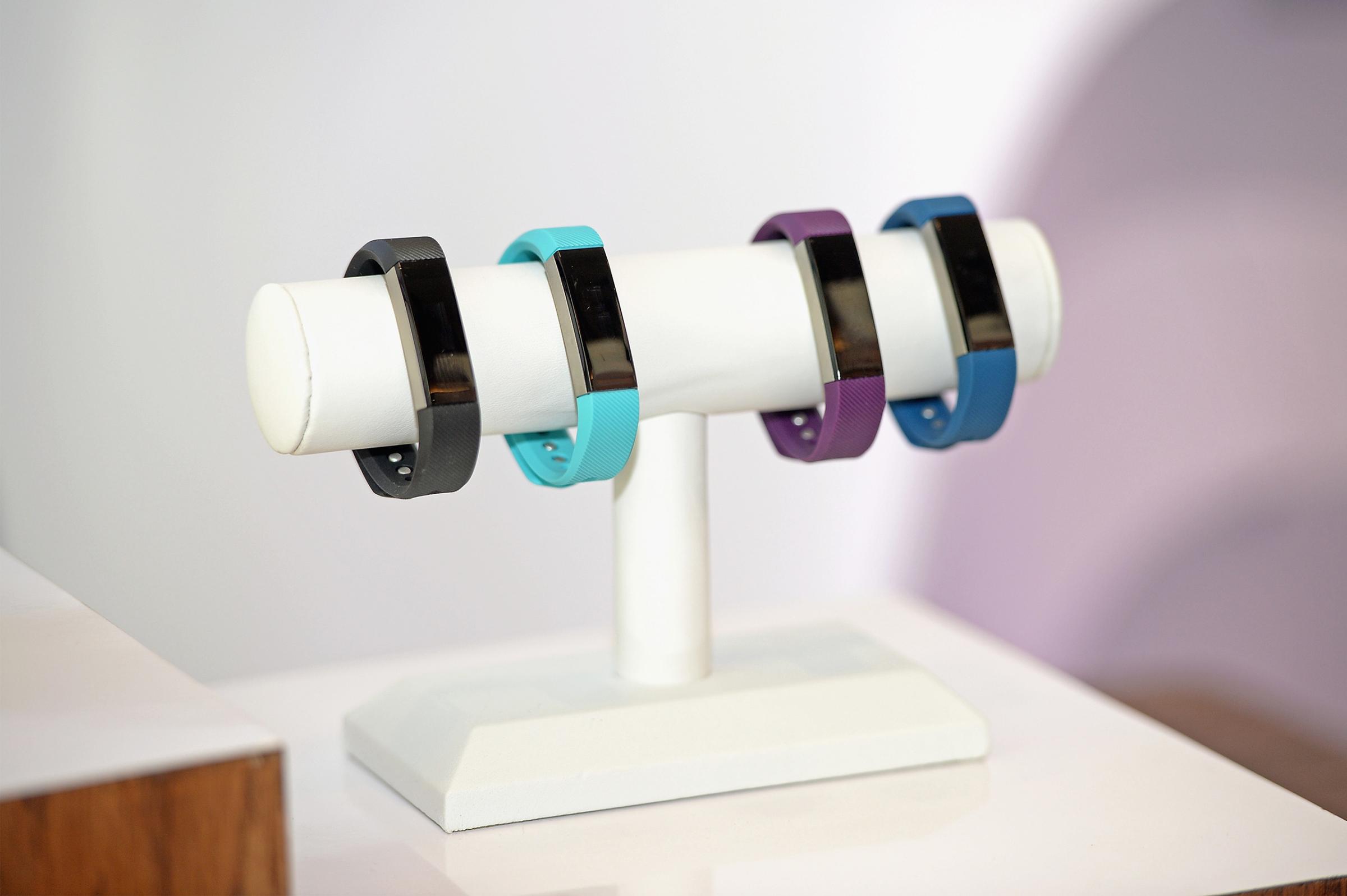
Pedometers have been around for centuries (seriously, look it up), but it was Fitbit that helped bring them into the digital age and to the masses. The company’s first device, released in 2009, tracked users’ steps, calories burned and sleep patterns. Most importantly, it allowed users to easily upload all that data to the company’s website for ongoing analysis, encouragement or guilt. Priced at $99, the Fitbit showed that wearables could be affordable. The company sold more than 20 million of the devices in 2015.
8. Osborne 1
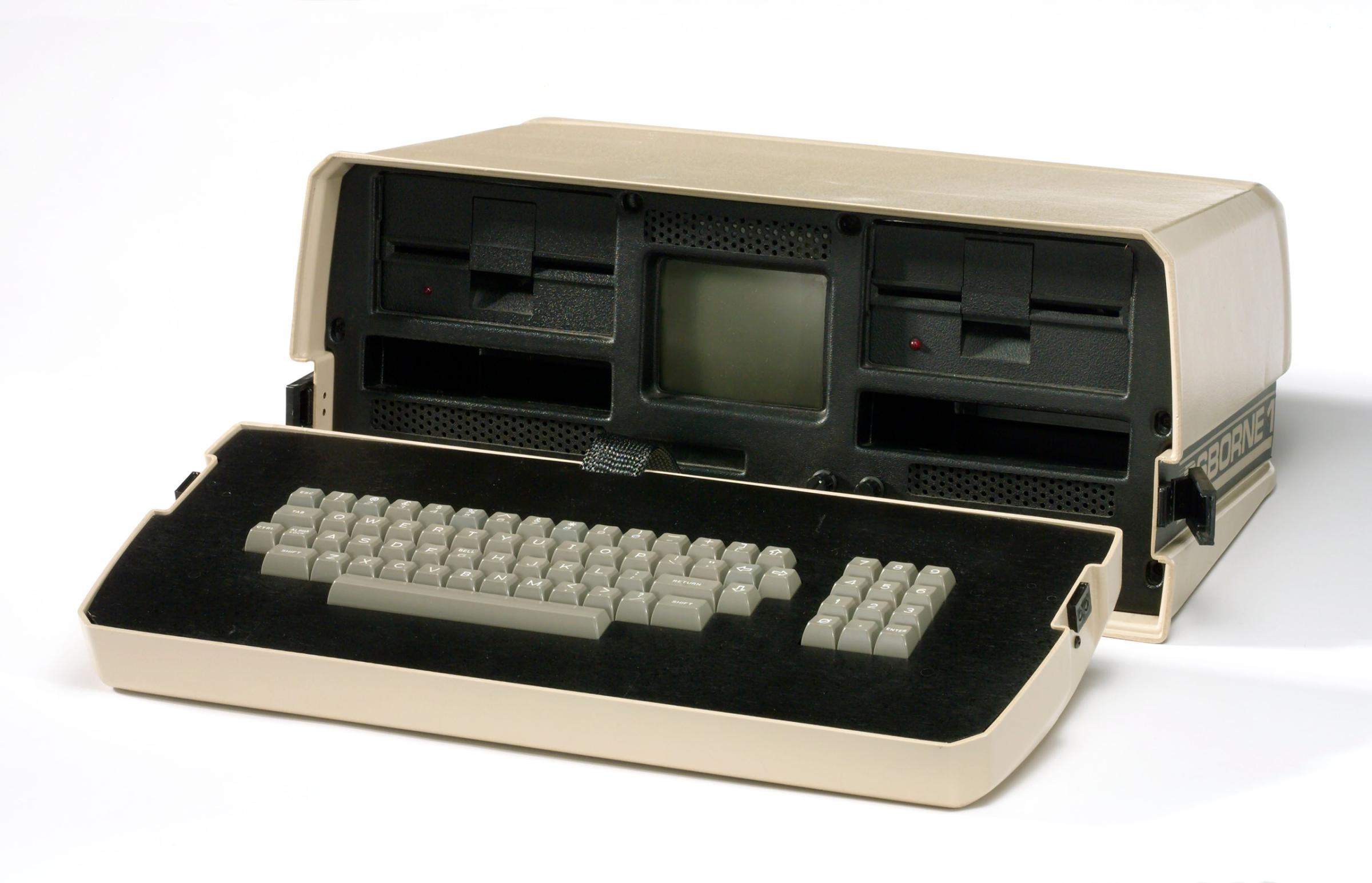
When you think of a portable computer, the Osborne 1 is probably not what comes to mind. But this unwieldy 25-pound machine was heralded by technology critics at the time of its 1981 release—BYTE magazine celebrated that it “fit under an airline seat.” The Osborne’s limitations, like a screen about the size of a modern iPhone’s, kept sales low. The machine’s true influence wasn’t on future gadgets, so much as how they are marketed. The company’s executives had an unfortunate knack for prematurely announcing new products, leading would-be customers to hold off for the better version and thus depressing sales. Marketing students now learn to avoid this deleterious “the Osborne effect.”
7. Nest Thermostat

Developed by the “godfather of the iPod,” Tony Fadell, the Nest Learning Thermostat was the first smart home device to capture mass market interest following its launch in 2011. Pairing the iconic round shape of classic thermostats with a full-color display and Apple-like software, the Nest features considerable processing power. (For instance, its ability to use machine learning to detect and predict usage patterns for heating and cooling a home.) As interesting as the device itself is, the Nest thermostat really turned heads in 2014 when the company behind it was bought by Google for $3.2 billion. The search engine giant turned the device into the center of its smart home strategy with hopes of ushering in an age of interconnected devices that will make everyday living more efficient.
6. Raspberry Pi
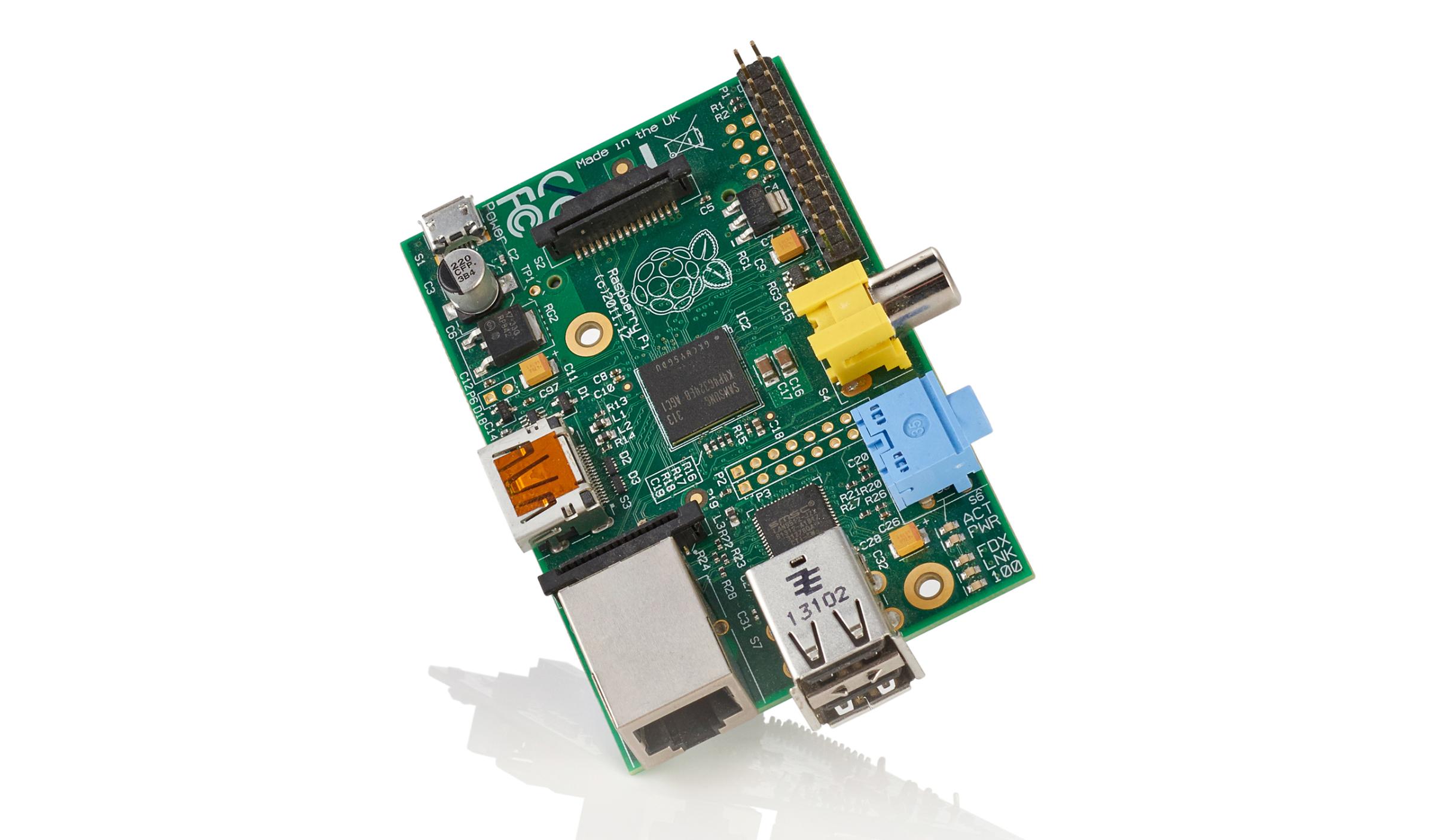
The Raspberry Pi is a single-board computer with a price tag to match its tiny size: about $35, without a monitor, mouse or keyboard. Not meant to replace everyday computers, the Pi is being used in classrooms worldwide to help students learn programming skills. With eight million Pi’s sold as of last year, the odds are decent that the next Mark Zuckerberg will have gotten his or her start tinkering with one.
5. DJI Phantom
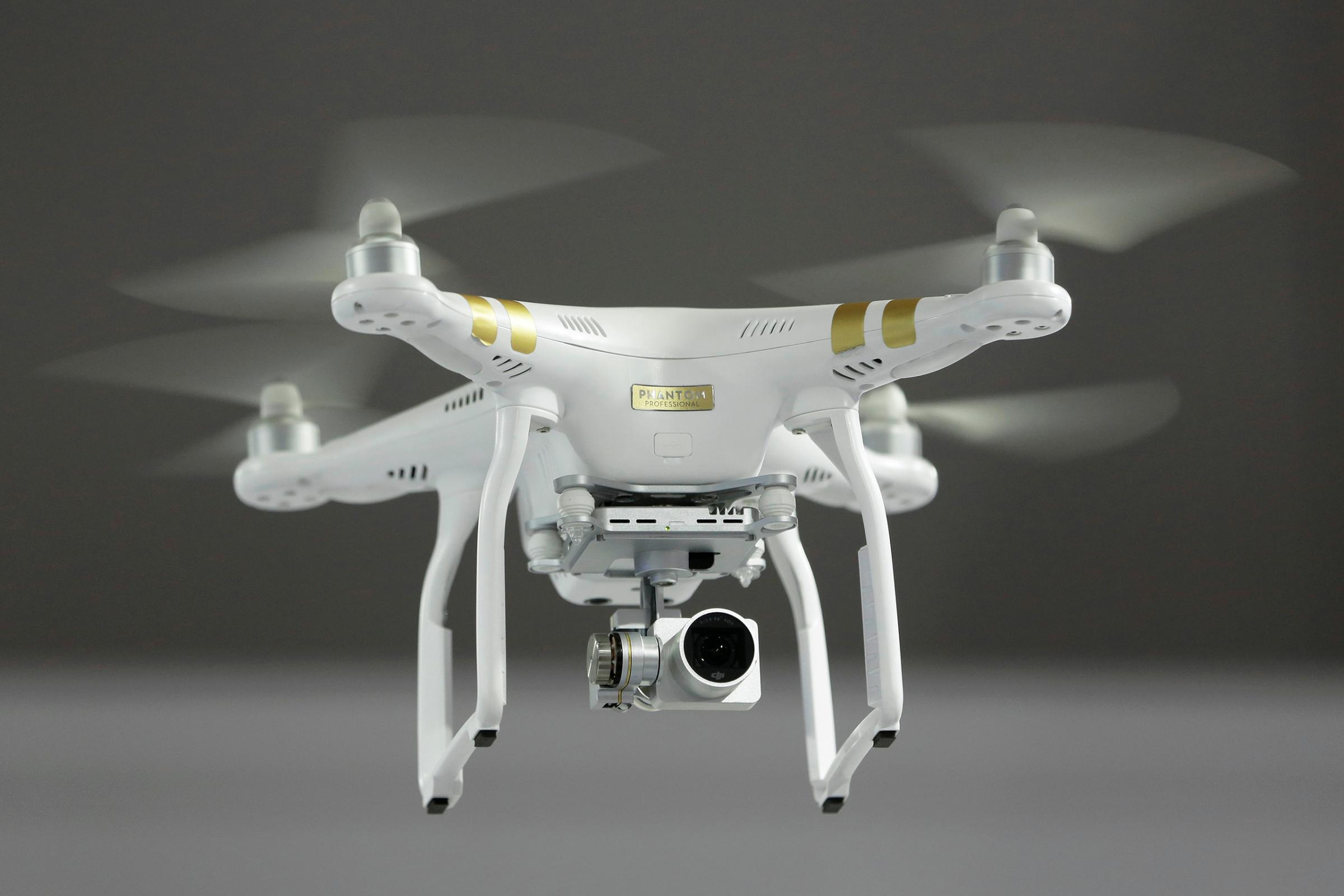
Small drones may soon be delivering our packages, recording our family get-togethers and helping first responders find people trapped in a disaster. For now, they’re largely playthings for hobbyists and videographers. Chinese firm DJI makes the world’s most popular, the Phantom lineup. Its latest iteration, the Phantom 4, uses so-called computer vision to see and avoid obstacles without human intervention. That makes it easier for rookie pilots to fly one, making drones more accessible than ever.
4. Yamaha Clavinova Digital Piano

You could argue the Minimoog did far more for music tech, or that the Fairlight was cooler, but visit average U.S. households from the 1980s forward and you’re most likely to encounter the Clavinova. Yamaha’s popular digital piano married the look and compactness of a spinet (a smaller, shorter upright piano) with the modern qualities of a modest synthesizer. With a plausibly pianistic weighted action and space-saving footprint, it’s become a staple for parents looking to bring maintenance-free musicality—you never have to tune it—into households, all without sacrificing huge swathes of living space.
3. Segway

Why is the Segway personal scooter such a potent cultural symbol? Maybe it has something to do with providing a metaphor for increasingly out-of-shape Americans. Perhaps it was seeing a U.S. president fall off one. Weird Al’s “White and Nerdy” video helped, too. The Segway—as hyped and as mocked as it has been—is a defining example of “last mile” transportation, an electric scooter designed to make walking obsolete. (Recently, the idea has been somewhat revived by the emergence of so-called hover boards, which are now also entering a kind of post-fad twilight.) The Segway’s symbolic impact greatly exceeded its commercial success. Unit sales never exceeded the six-figure mark before the firm was purchased by a Chinese interest in 2015 for an undisclosed sum.
2. Makerbot Replicator
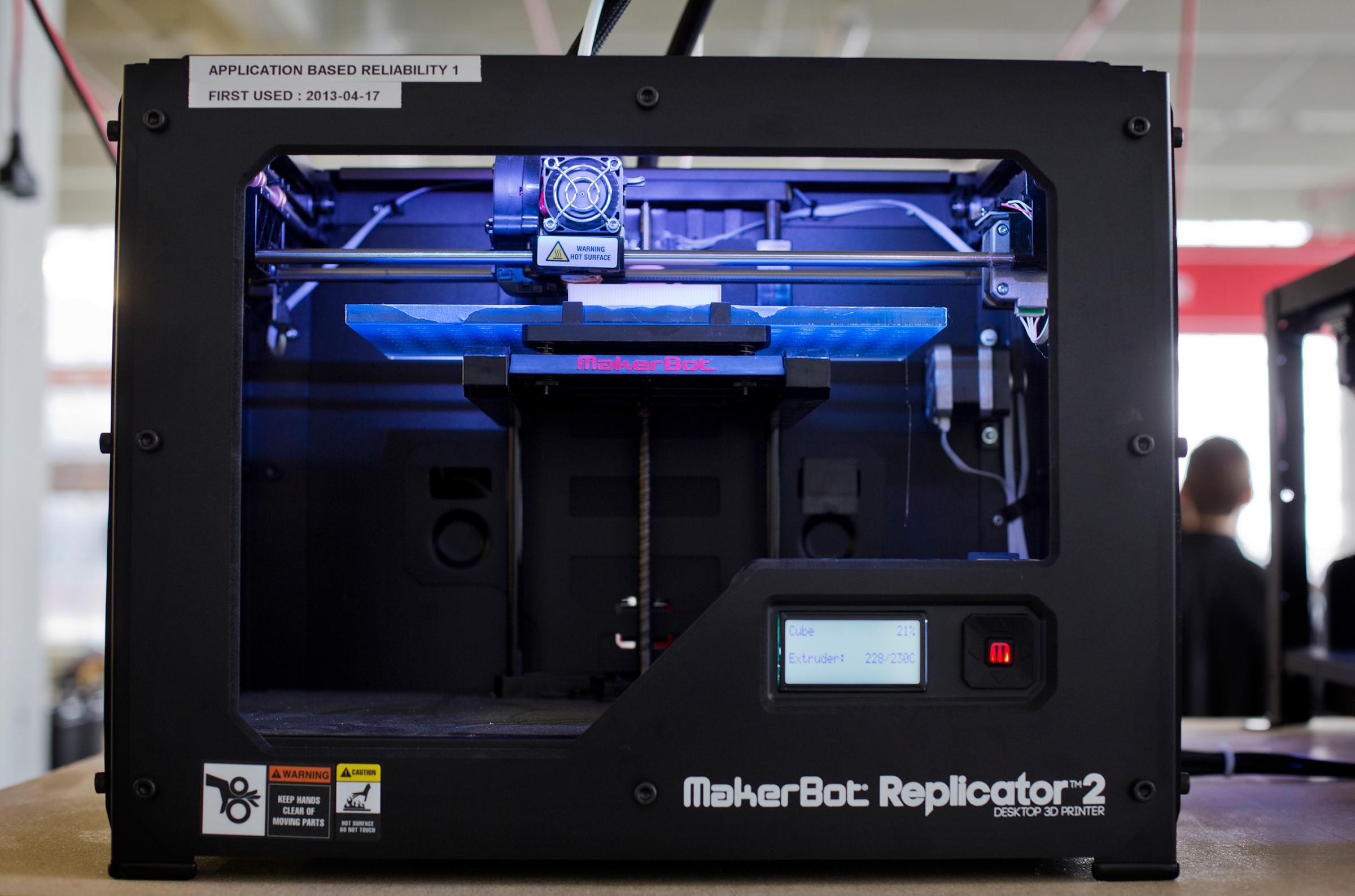
The Makerbot Replicator was neither the first nor the best consumer-level 3-D printer. But it was the model that made the technology widely accessible for the first time, thanks to its sub-$2,000 price tag. The Replicator used inkjet printer-like technology to extrude hot plastic that took three-dimensional form as artwork, mechanical parts and more. As a company, Makerbot’s future is uncertain. But the firm’s equipment helped bring 3-D printing into the mainstream and is a fixture of many American classrooms.
1. Google Glass
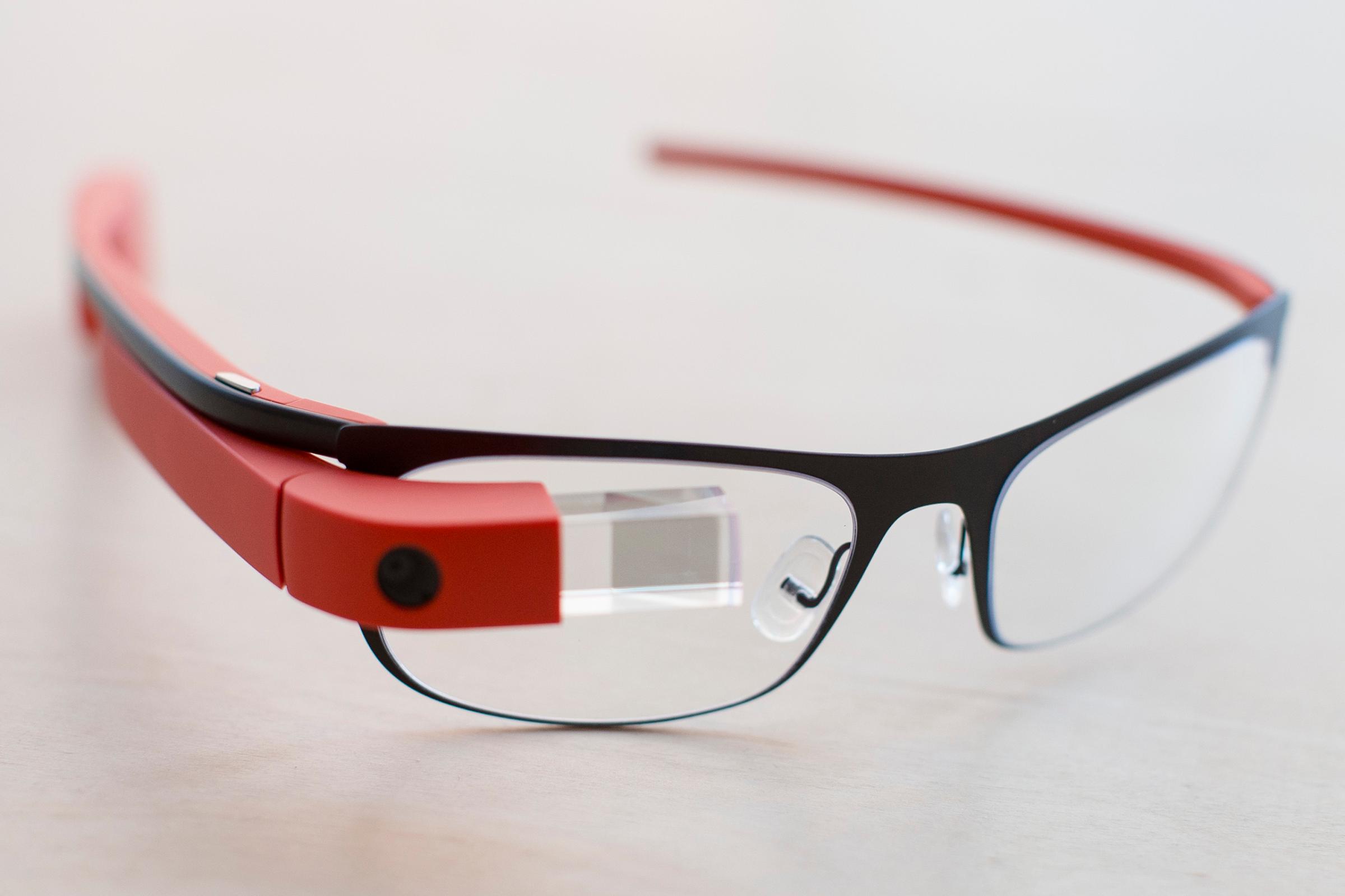
Google Glass, which cost $1,500 for those invited to a sort of public beta test, never took off. The relatively powerful head-mounted computer provided important signals for the future of wearable technology. Glass showed that designers working on computing devices that are worn face a different set of assumptions and challenges. Glass, for example, made it easy for users to surreptitiously record video, which led some restaurants, bars and movie theaters to ban the device. Glass also showed the potential pitfalls of easily identifiable wearables, perhaps best proven by the coining of the term “Glassholes” for its early adopters. While Glass was officially shelved in 2015, augmented reality—displaying computer-generated images over the real world—is a concept many companies are still trying to perfect. Google included.
Based in Florida, Magic Leap has raised nearly $1.4 billion in funding from high-profile investors like Google and Andreessen Horowitz. This new partnership, meanwhile, is sure to fuel speculation that Disney may be interested in acquiring the company for its technology and talent.
Still, there are reasons for skepticism about Magic Leap. Google Glass, the most high-profile effort thus far to get consumers to wear a gadget on their face as they go about their day, failed in part because people rejected the idea as too weird. Others have worried that mixed reality could blend the real world and the digital one to an uncomfortable degree. Another concern: a mixed-reality world could offer brands the chance to cover users’ environments in digital advertising.
Abovitz, however, said he views mixed reality as “a sacred space.” “We don’t want this dystopian view of [alternative reality],” he said, using an alternate term for mixed reality.
More Must-Reads from TIME
- Caitlin Clark Is TIME's 2024 Athlete of the Year
- Where Trump 2.0 Will Differ From 1.0
- Is Intermittent Fasting Good or Bad for You?
- The 100 Must-Read Books of 2024
- Column: If Optimism Feels Ridiculous Now, Try Hope
- The Future of Climate Action Is Trade Policy
- FX’s Say Nothing Is the Must-Watch Political Thriller of 2024
- Merle Bombardieri Is Helping People Make the Baby Decision
Contact us at letters@time.com